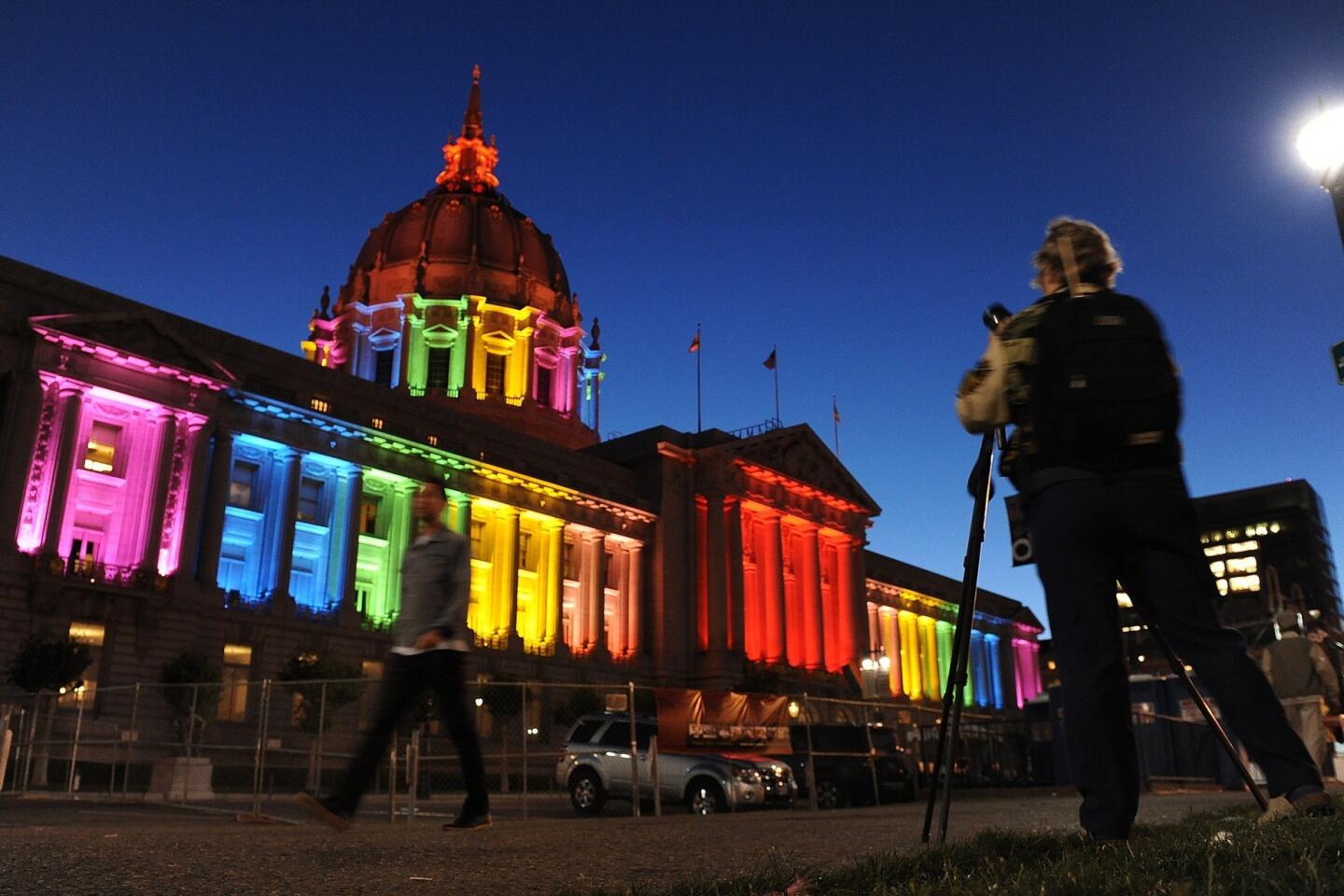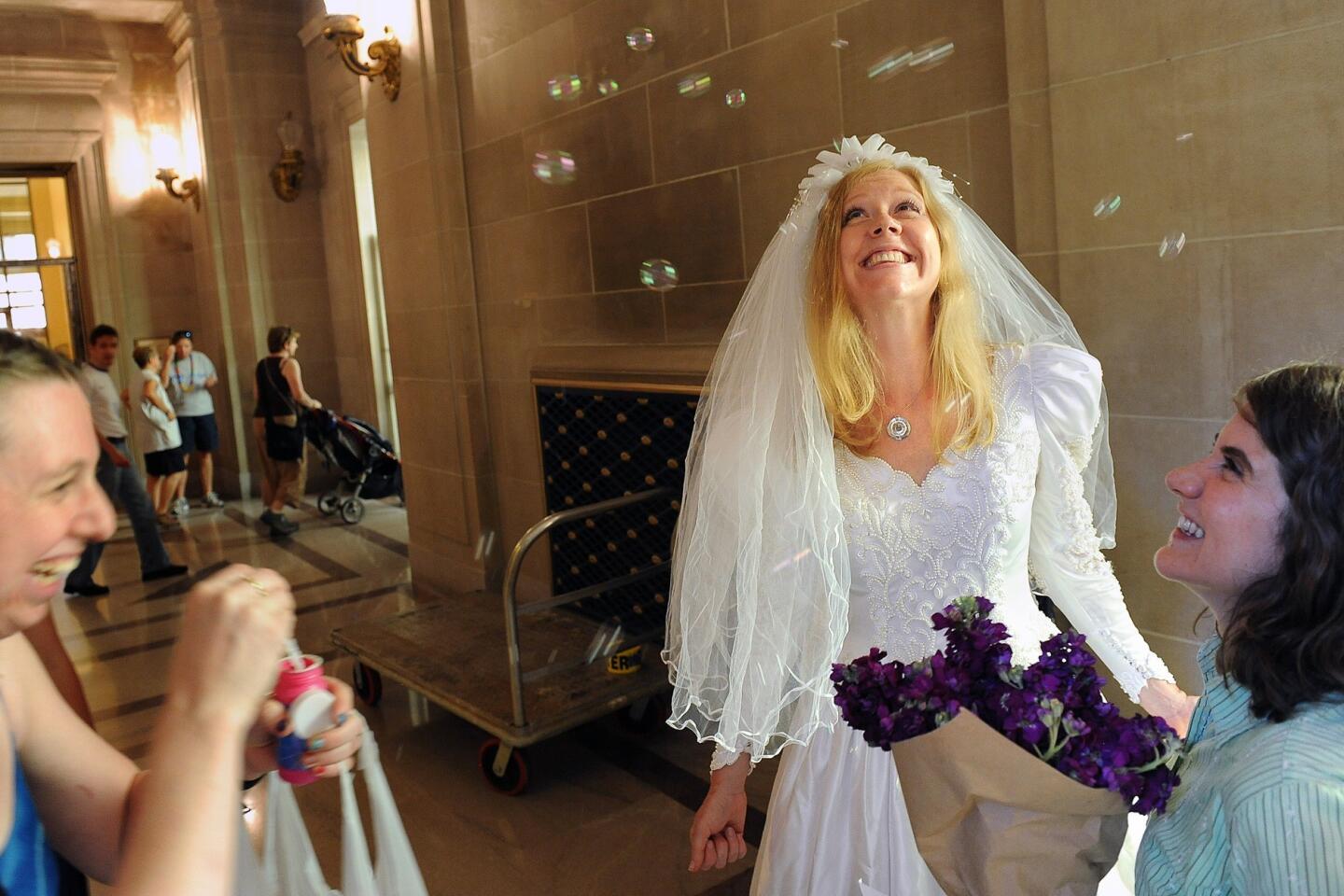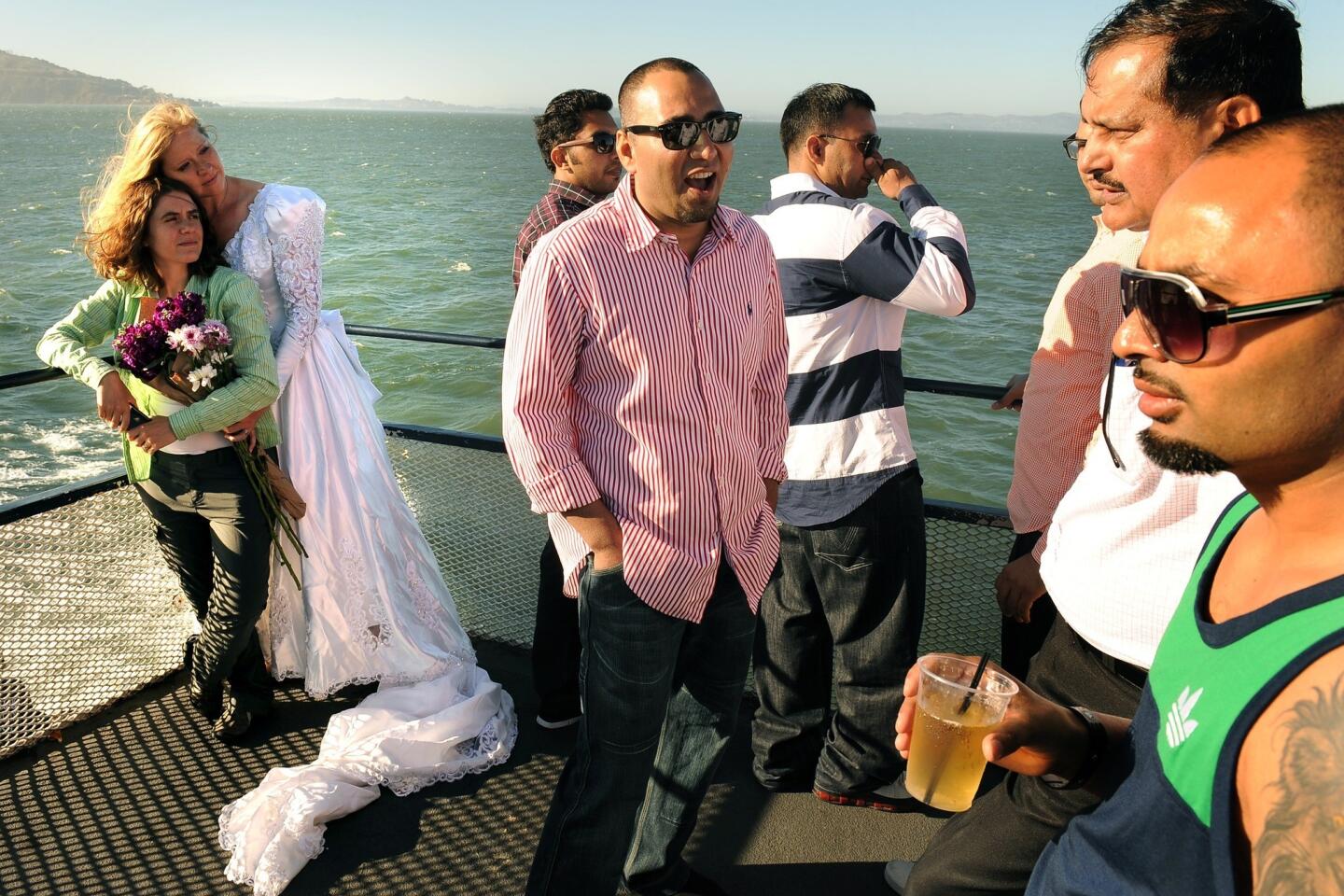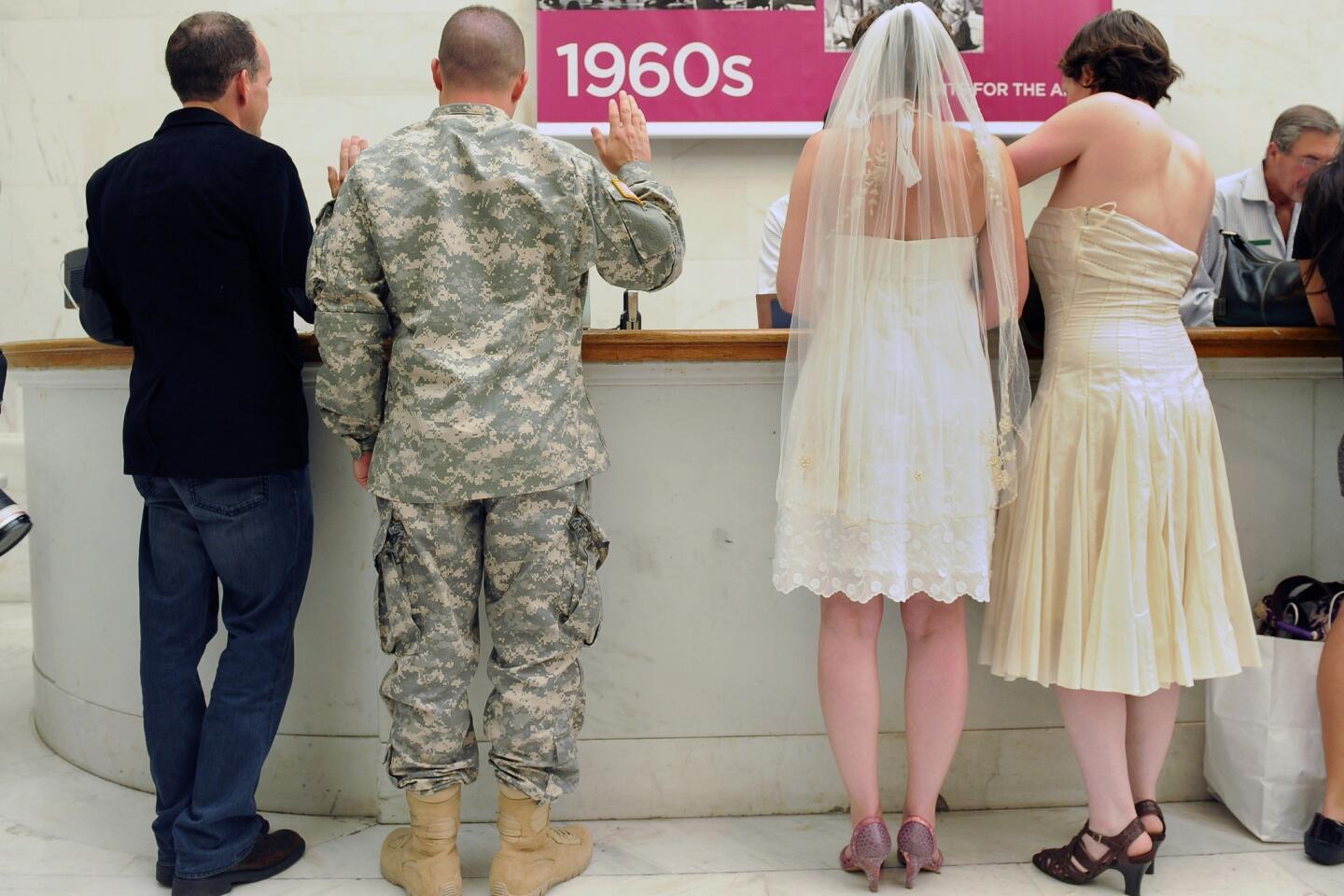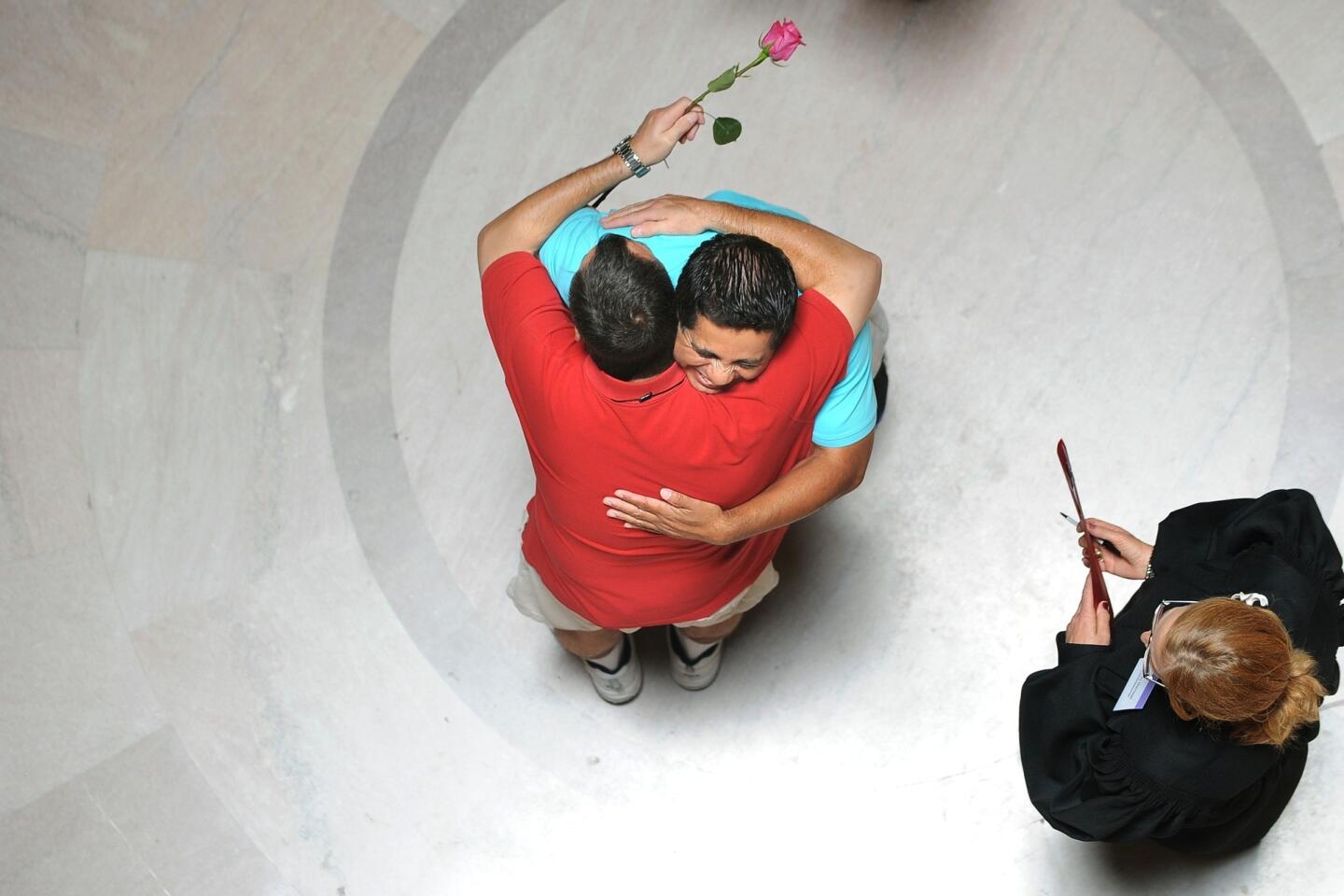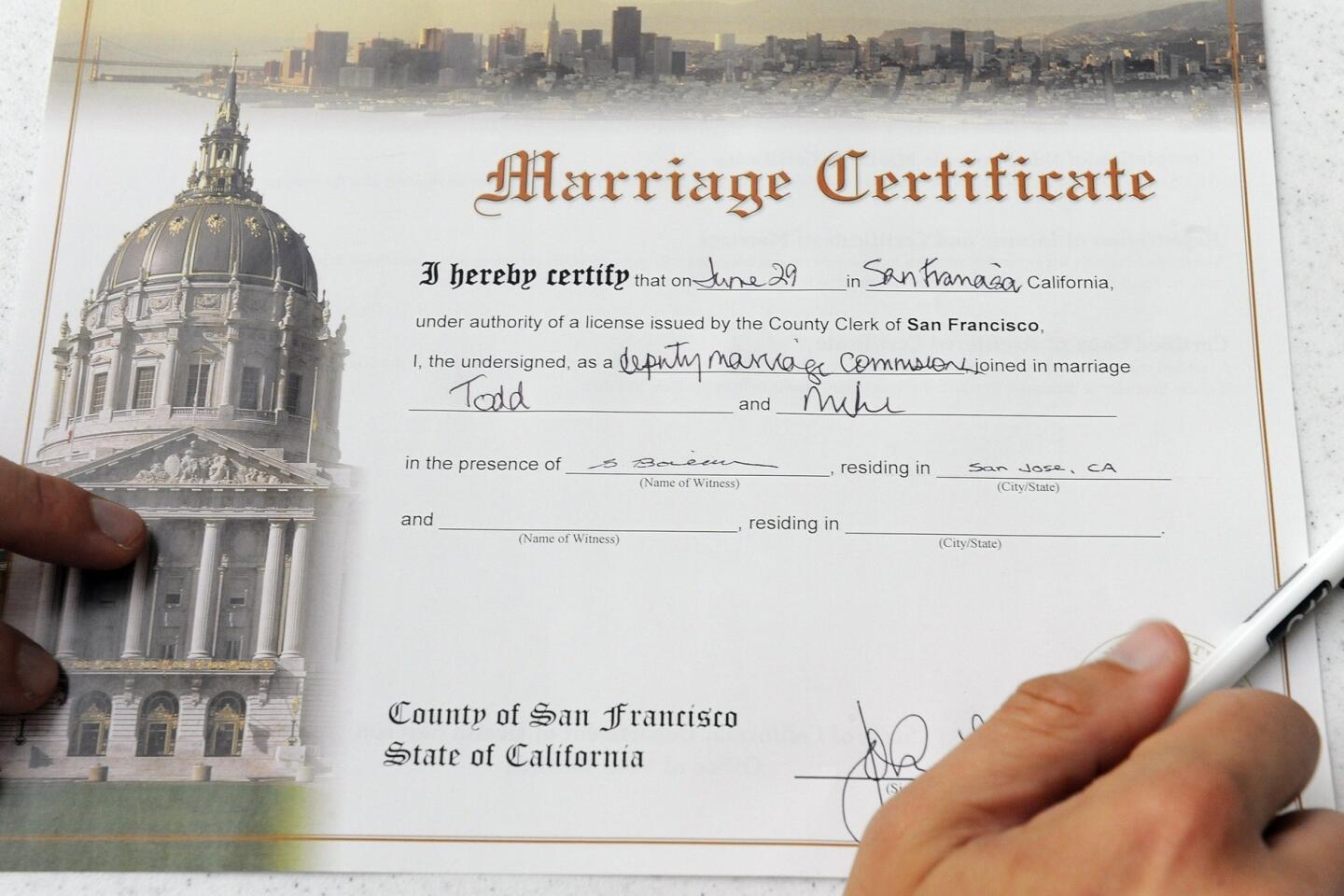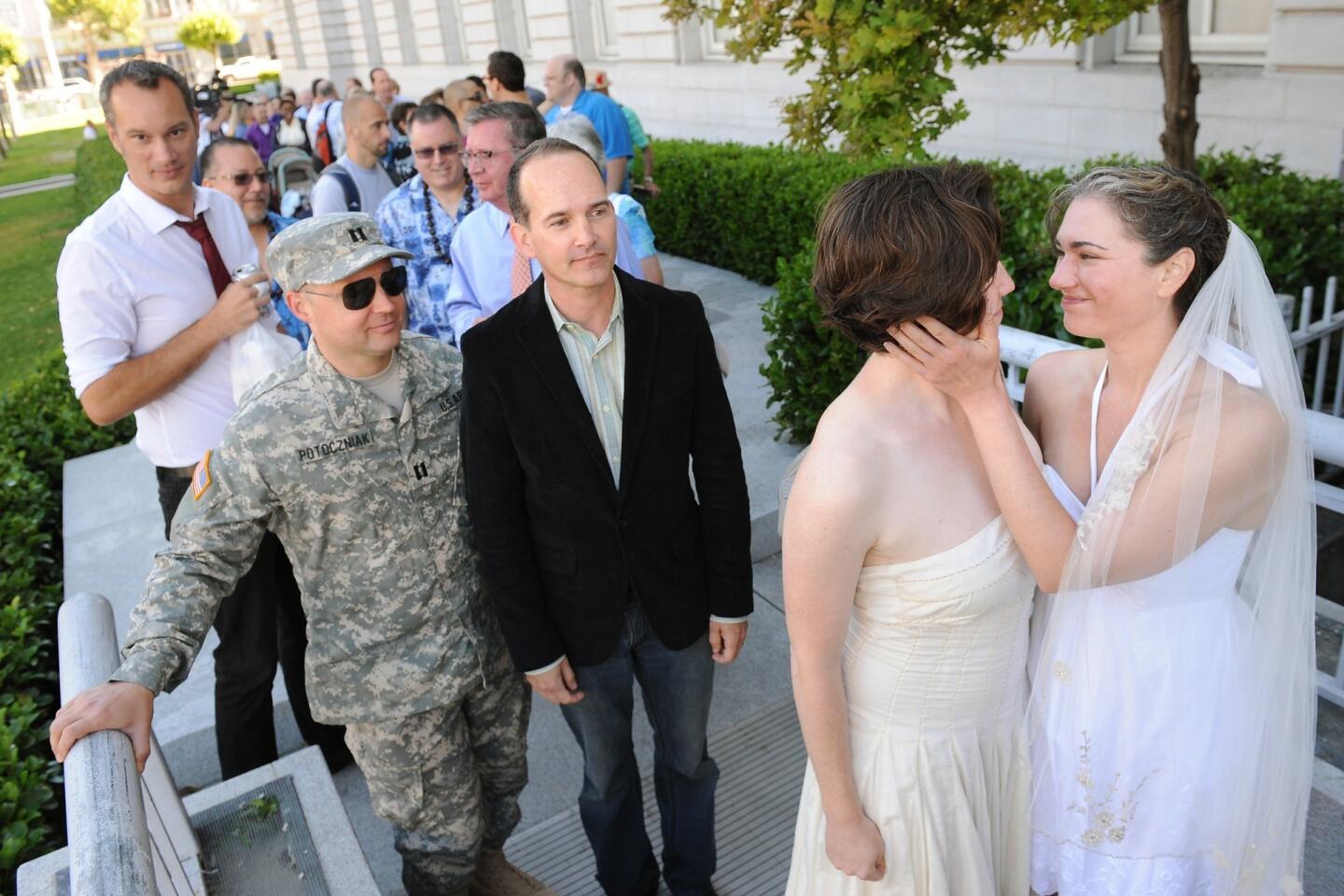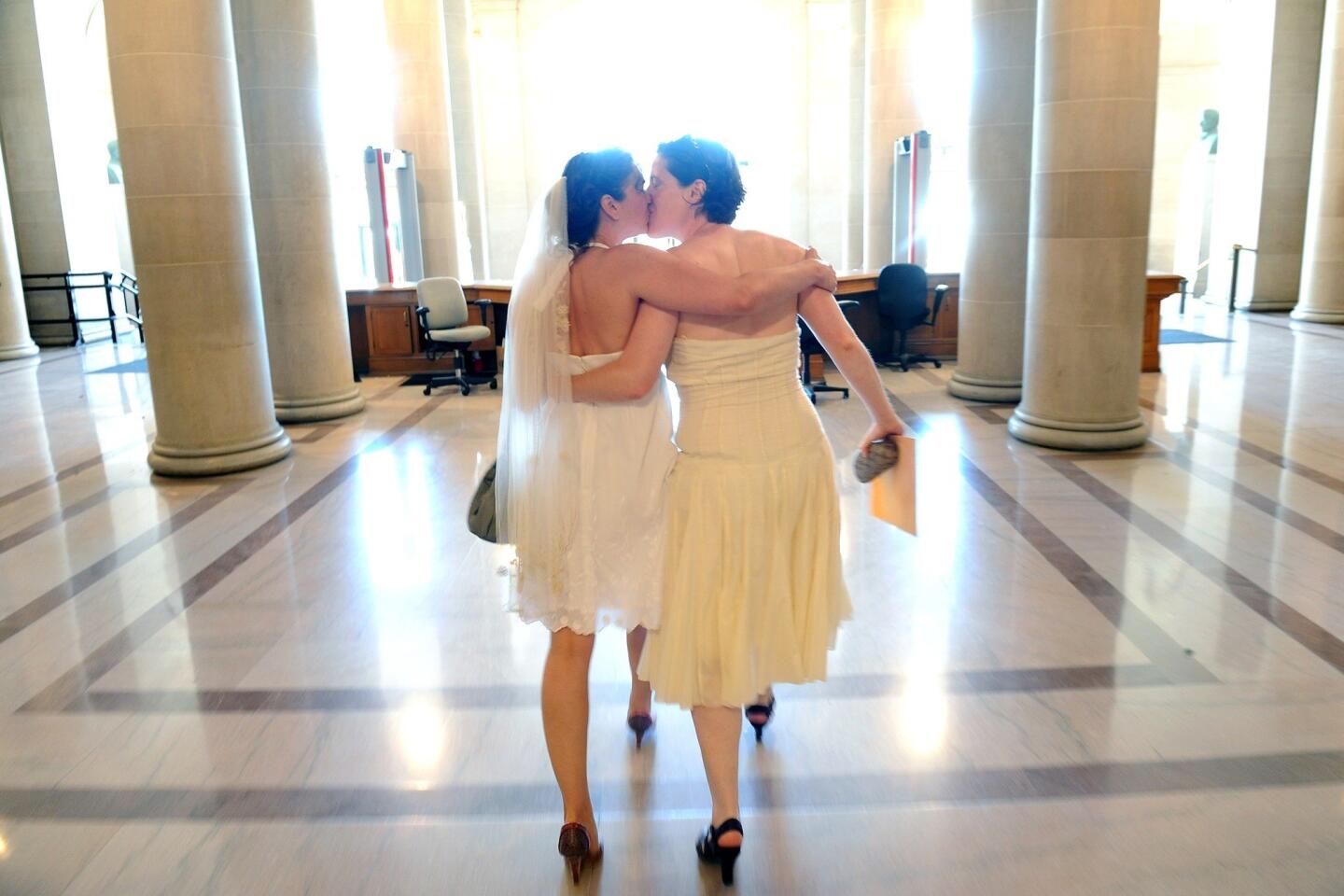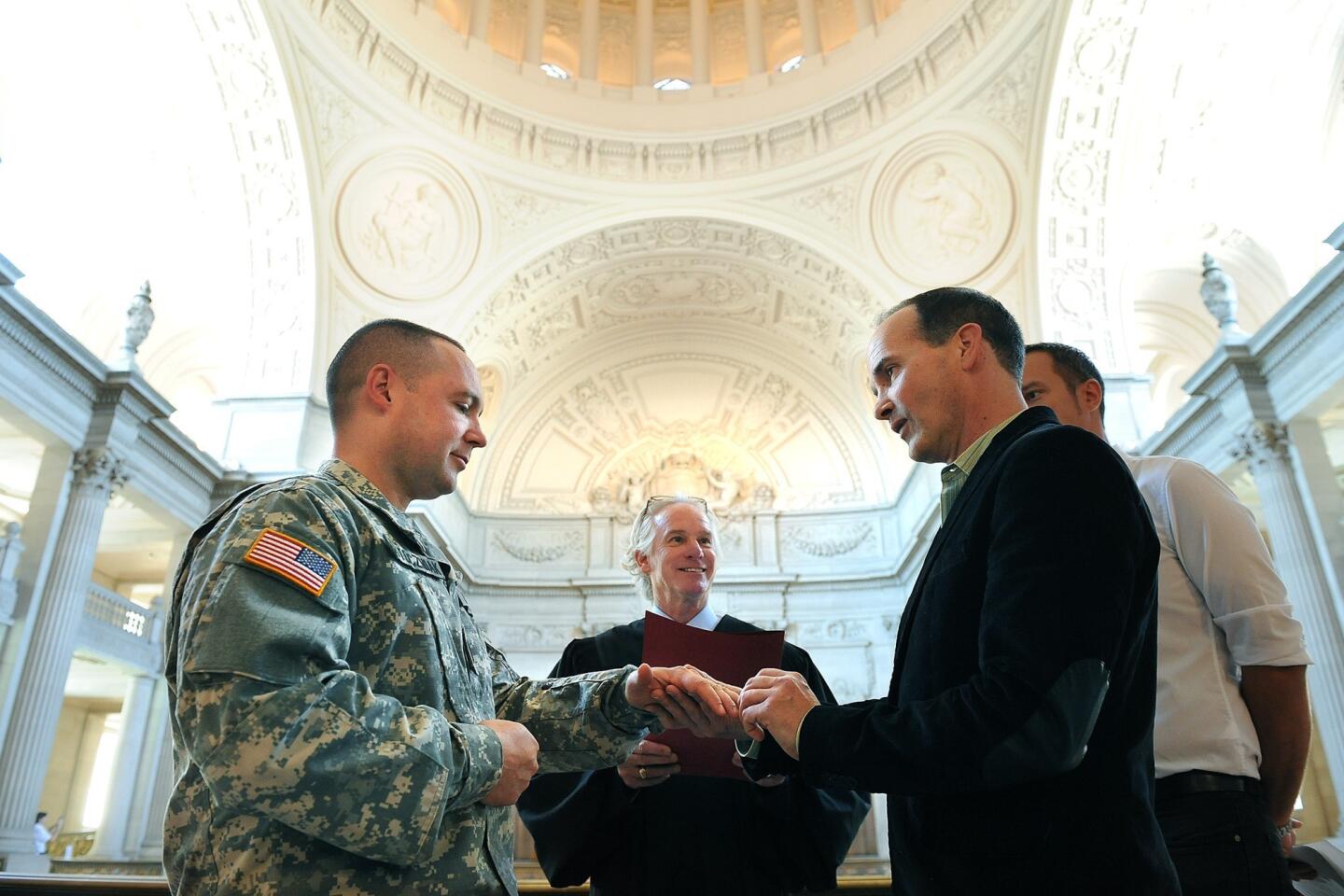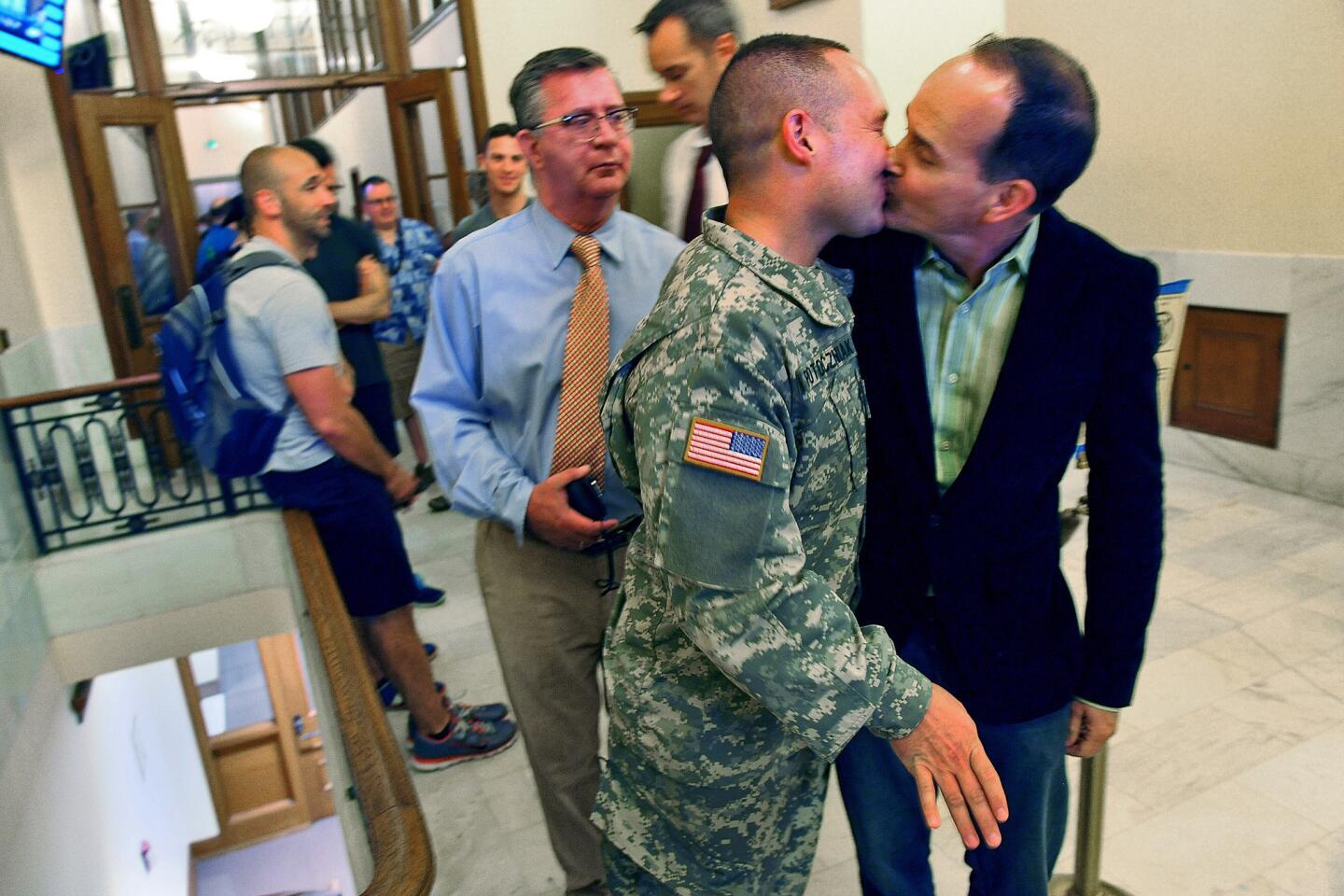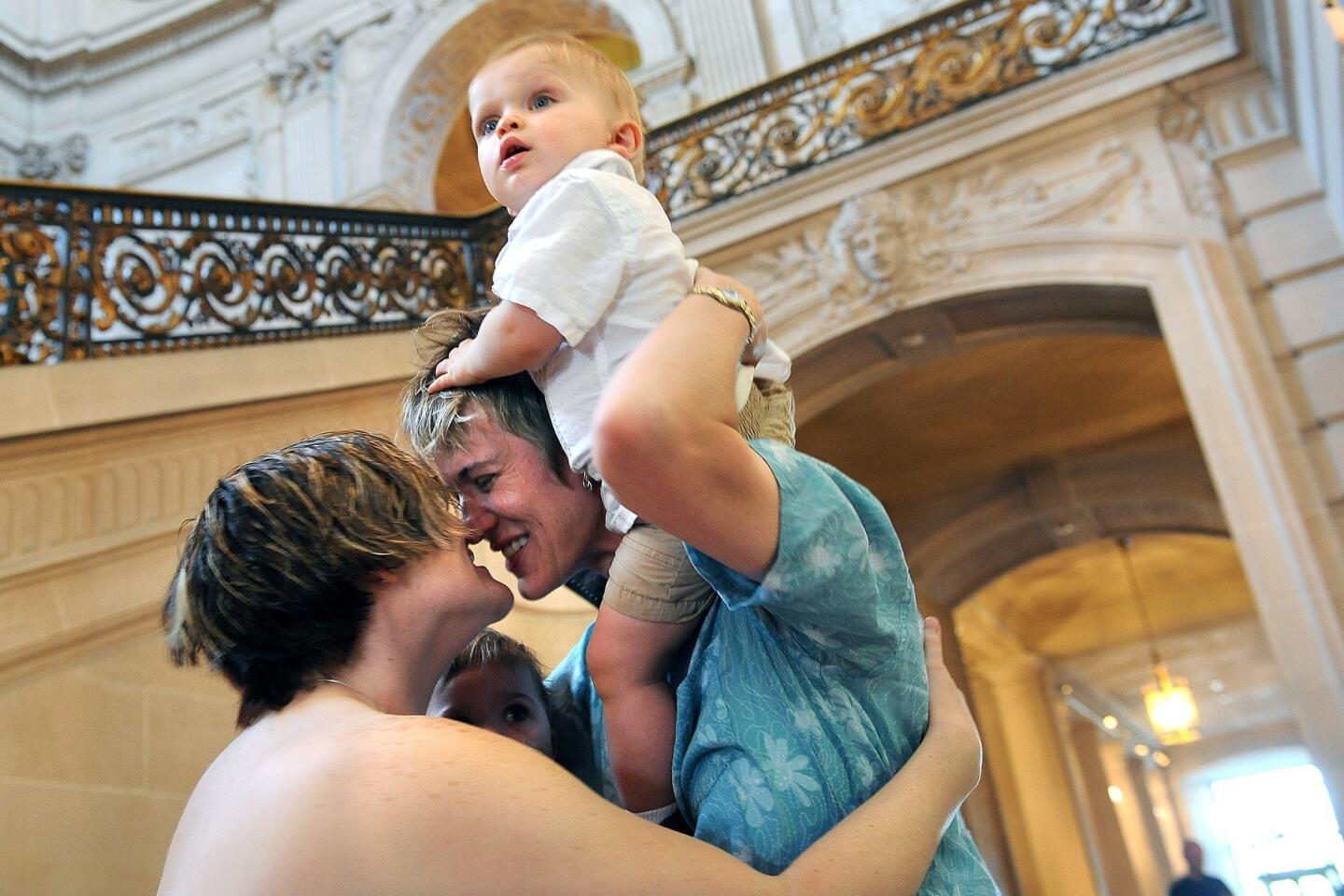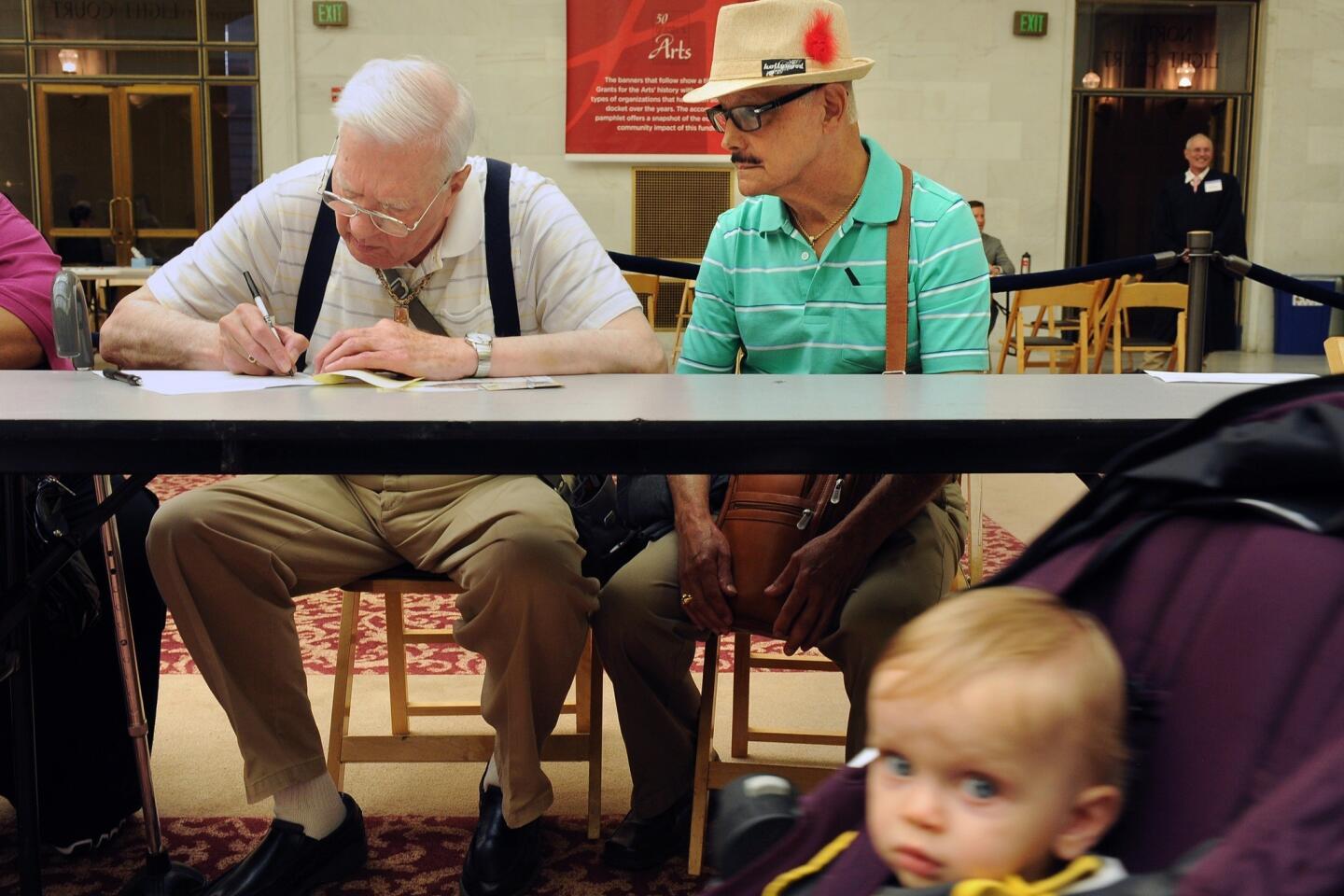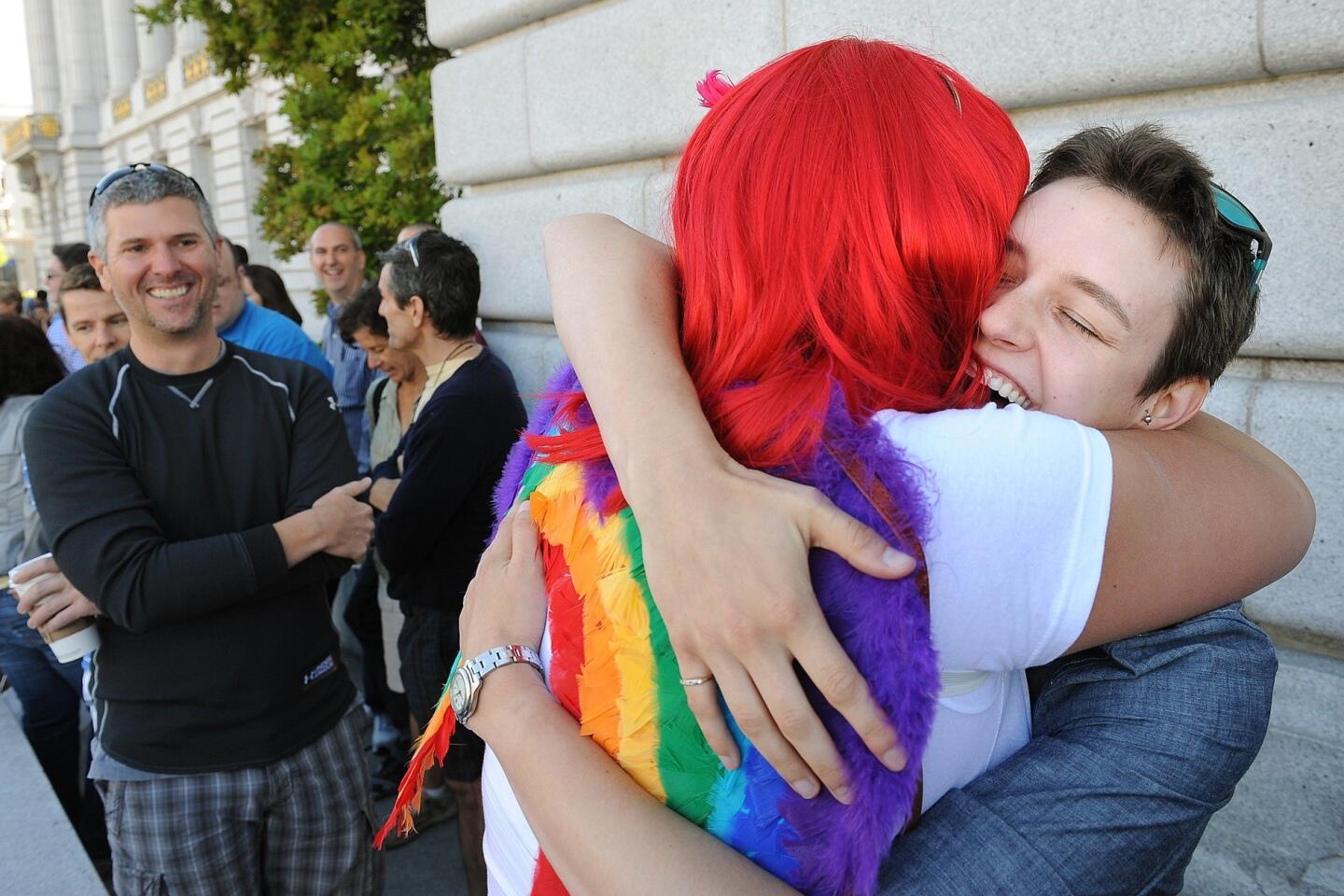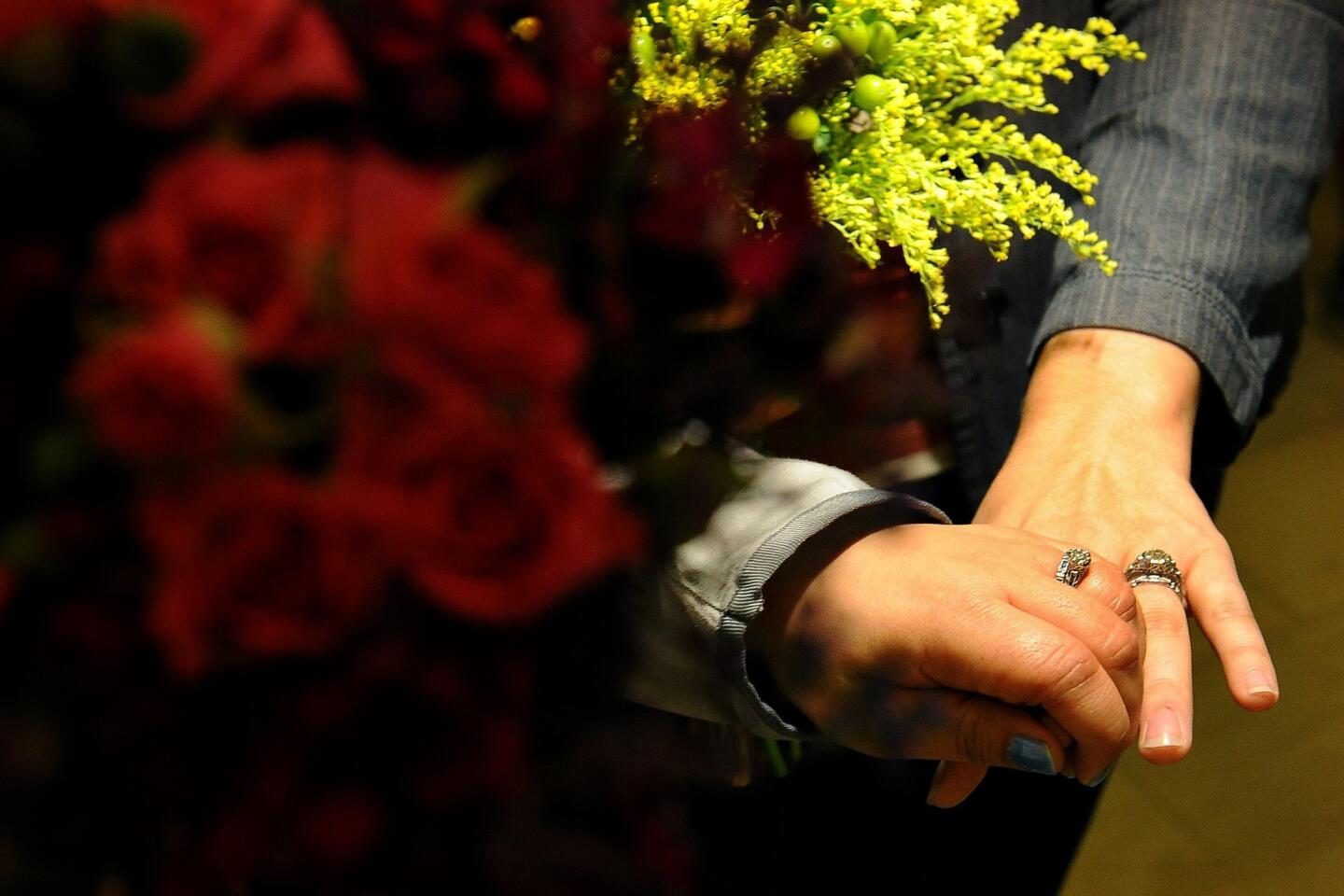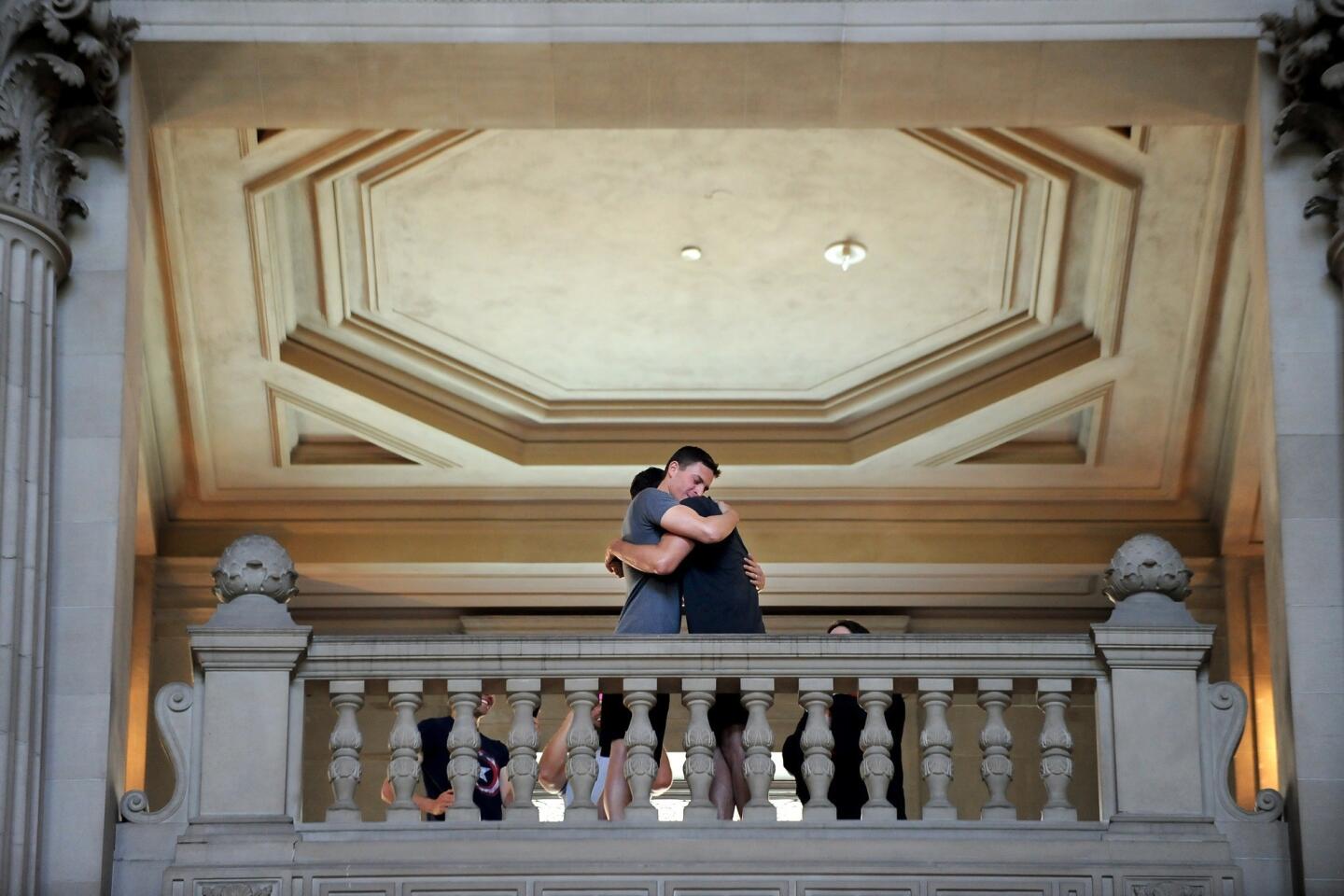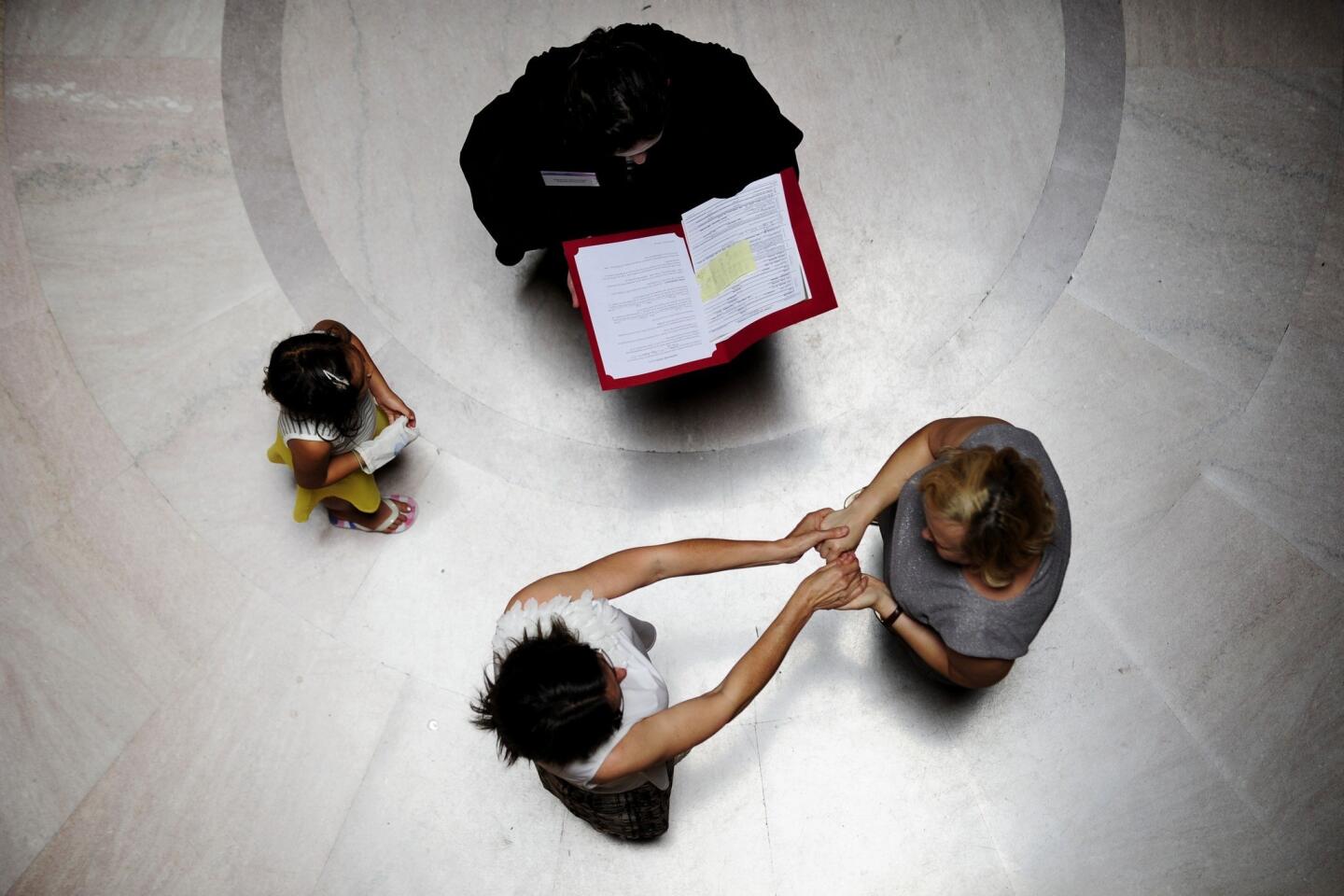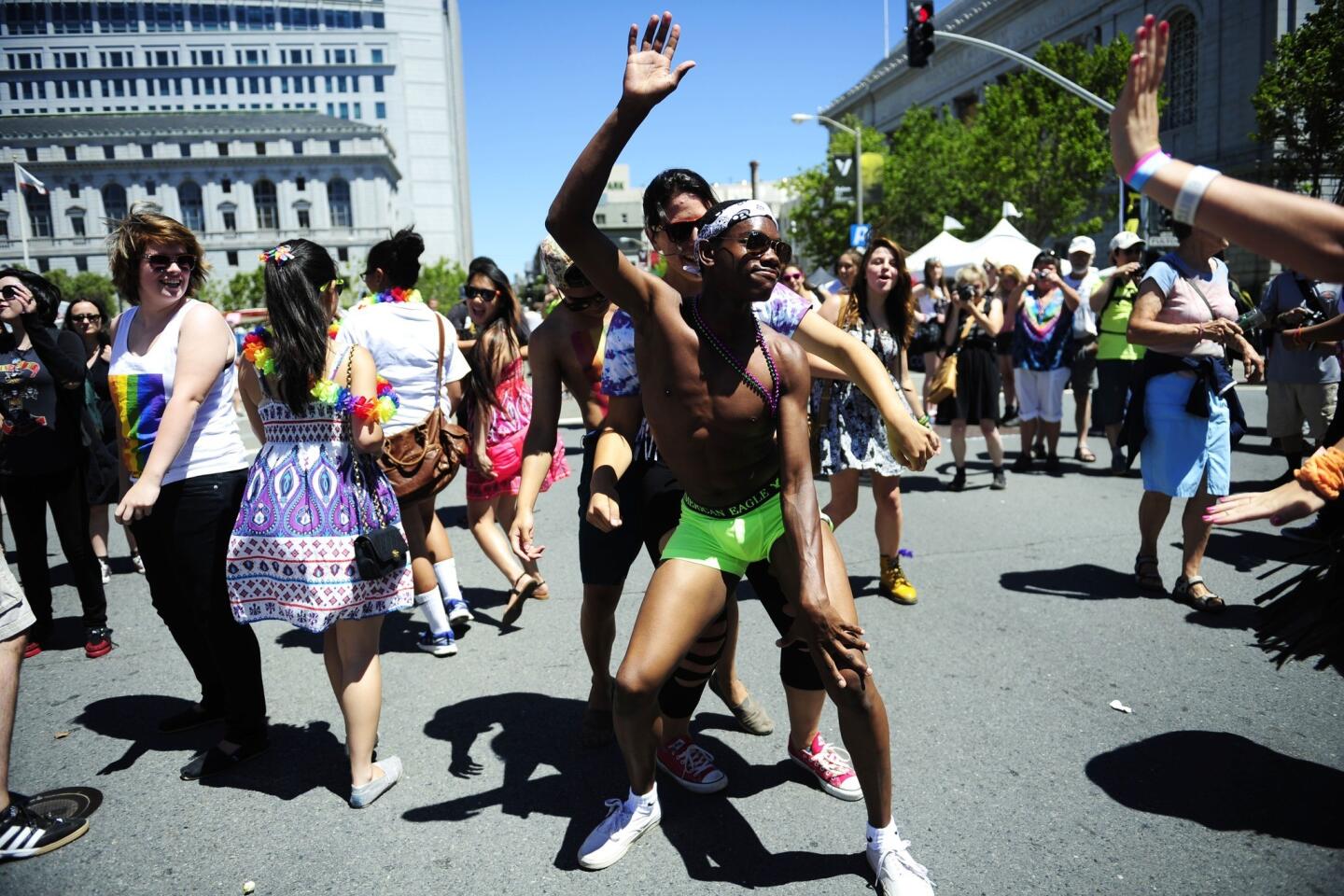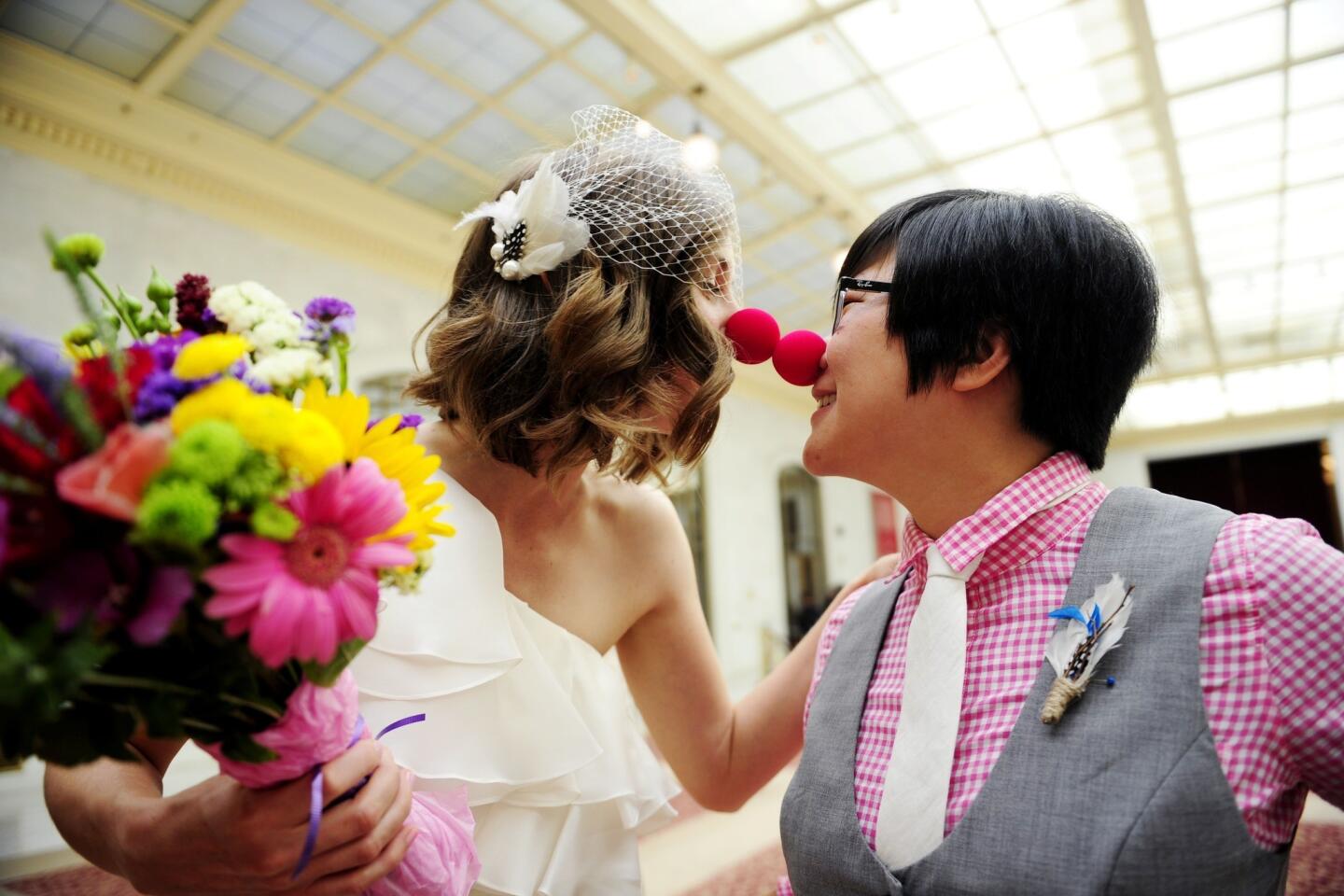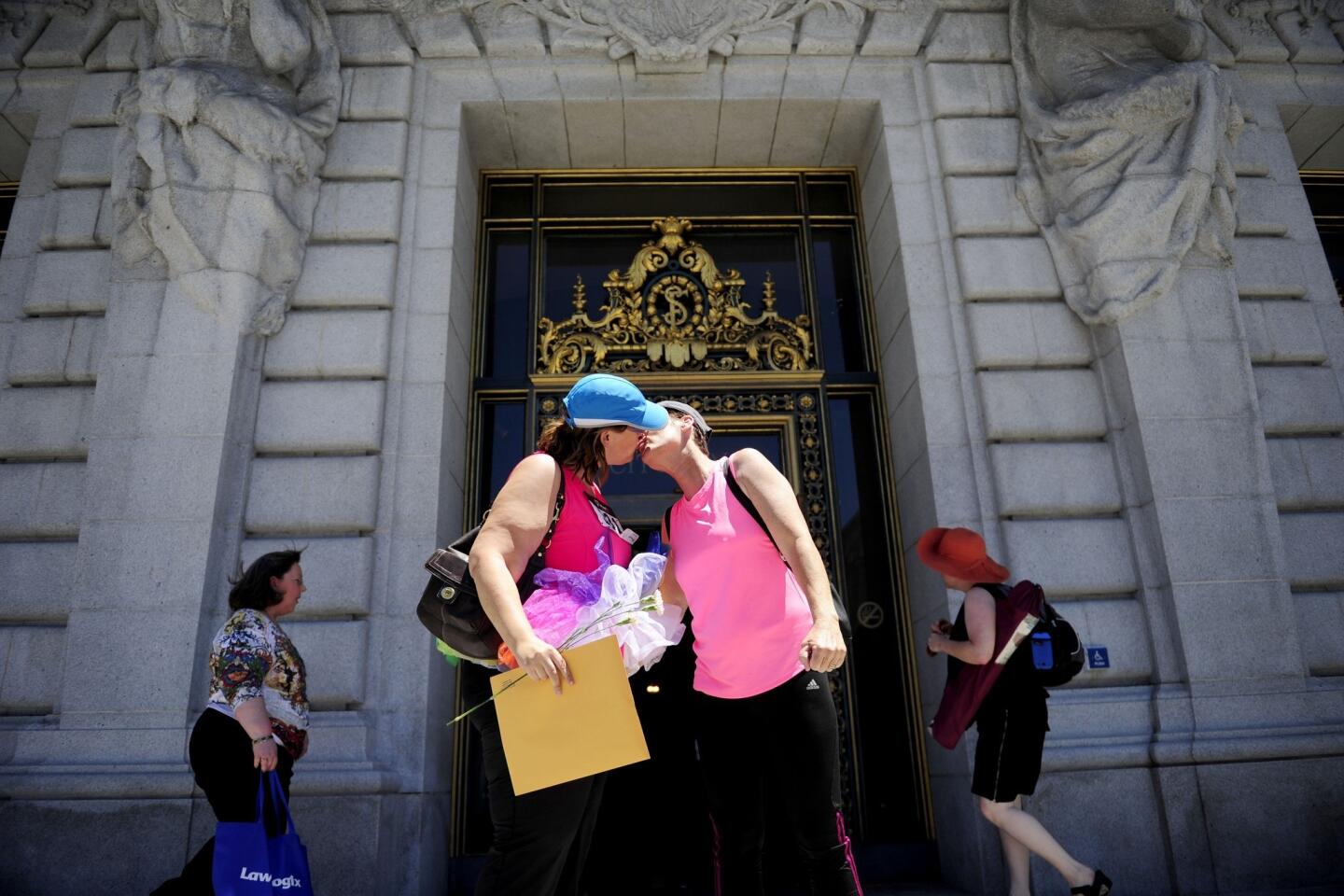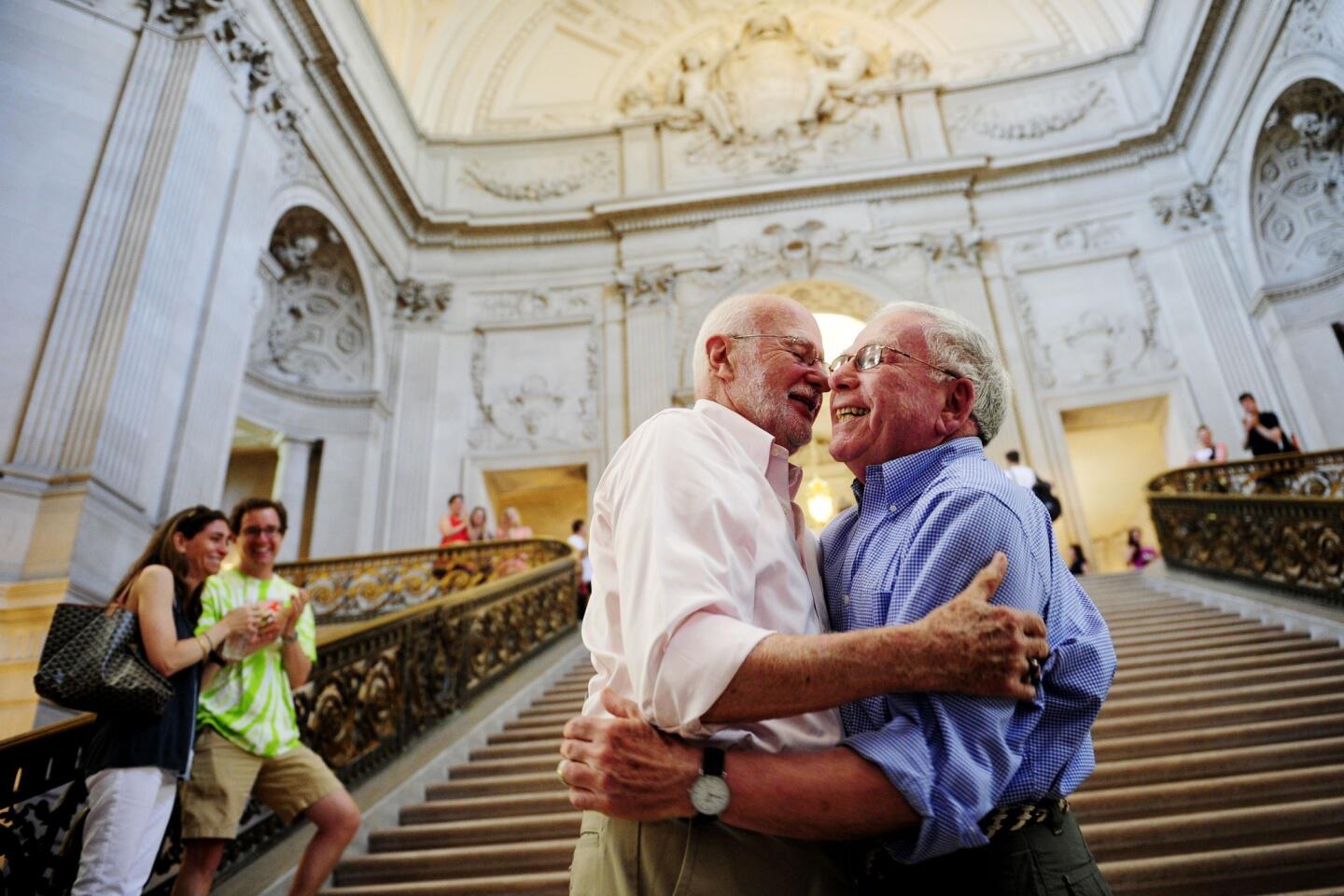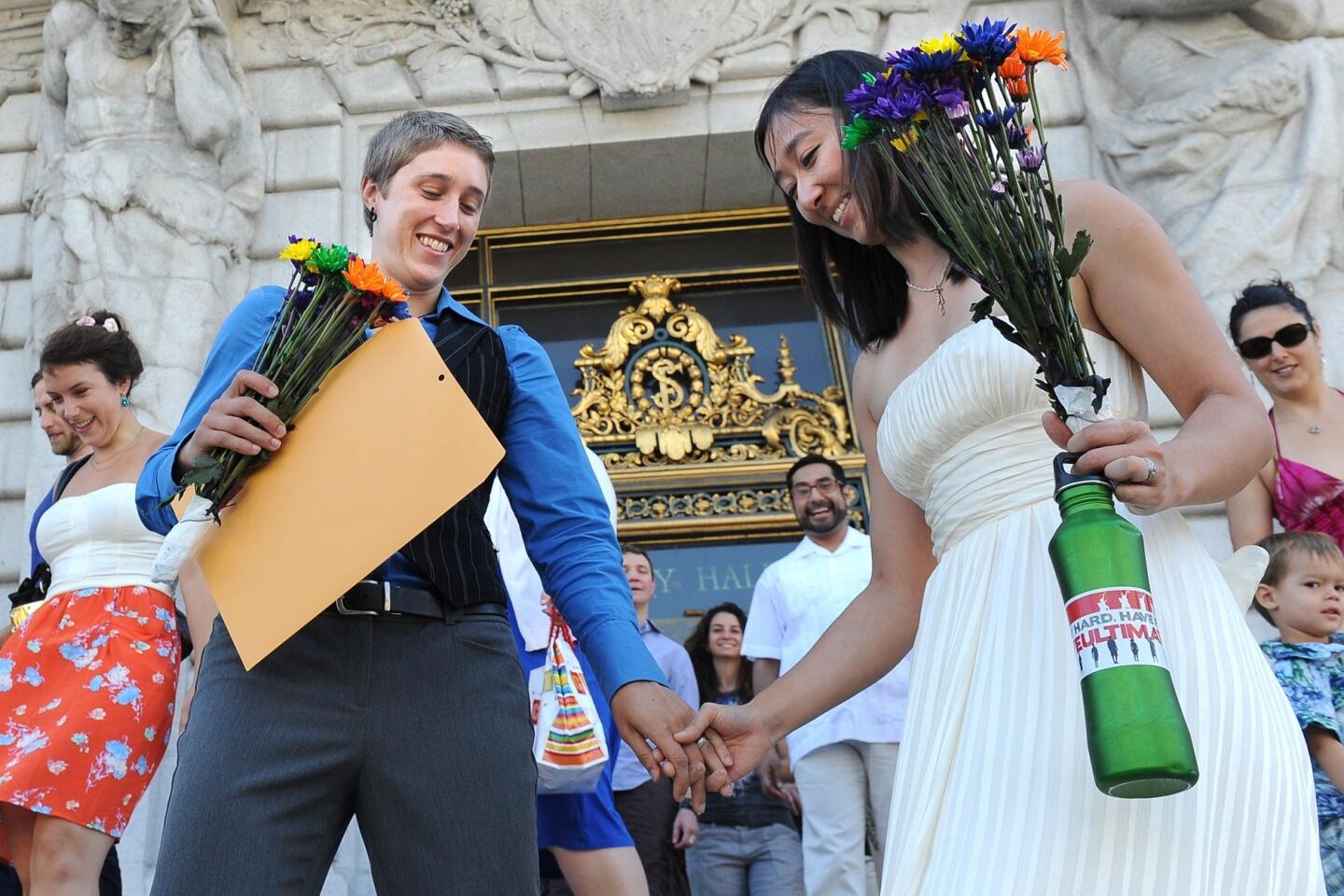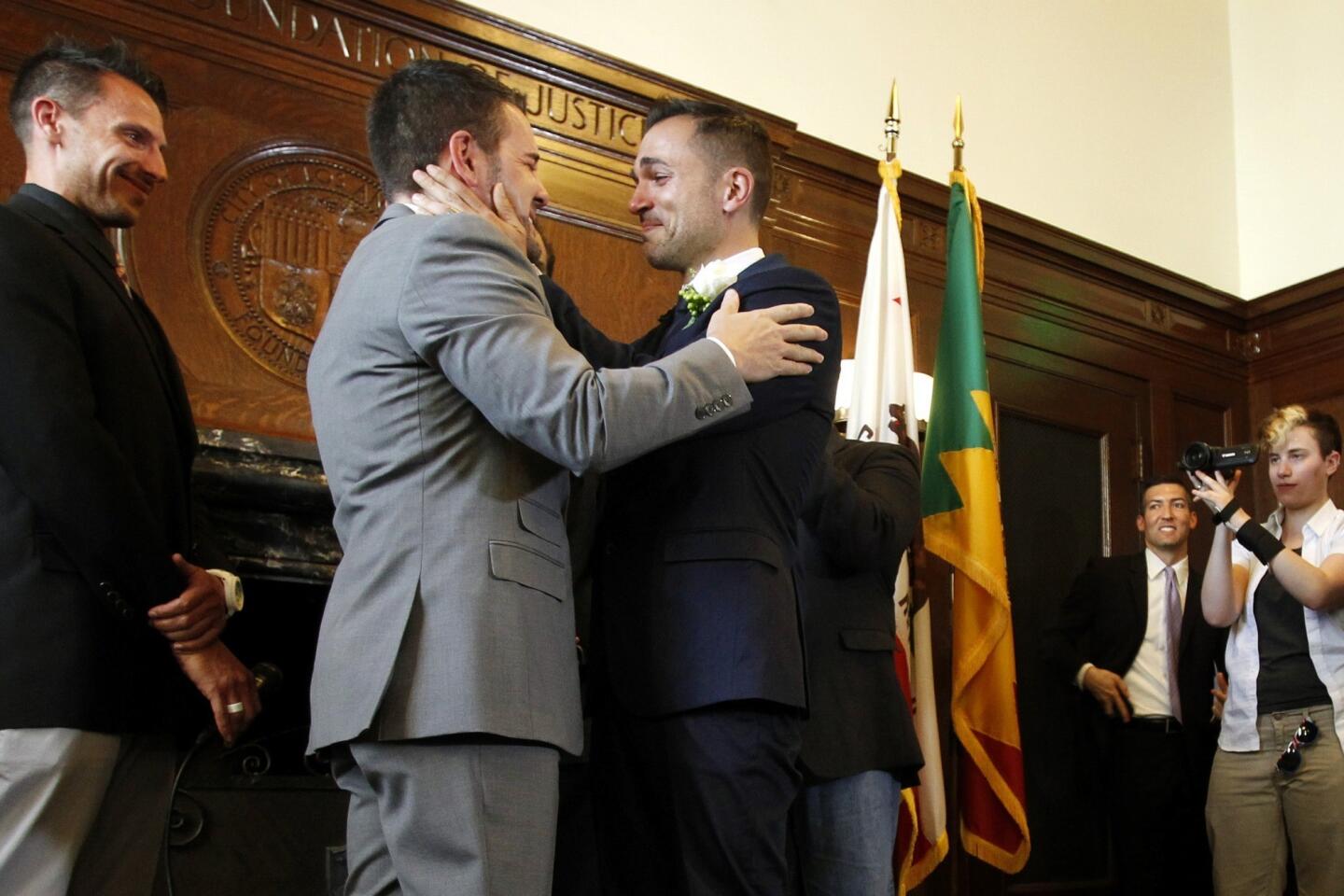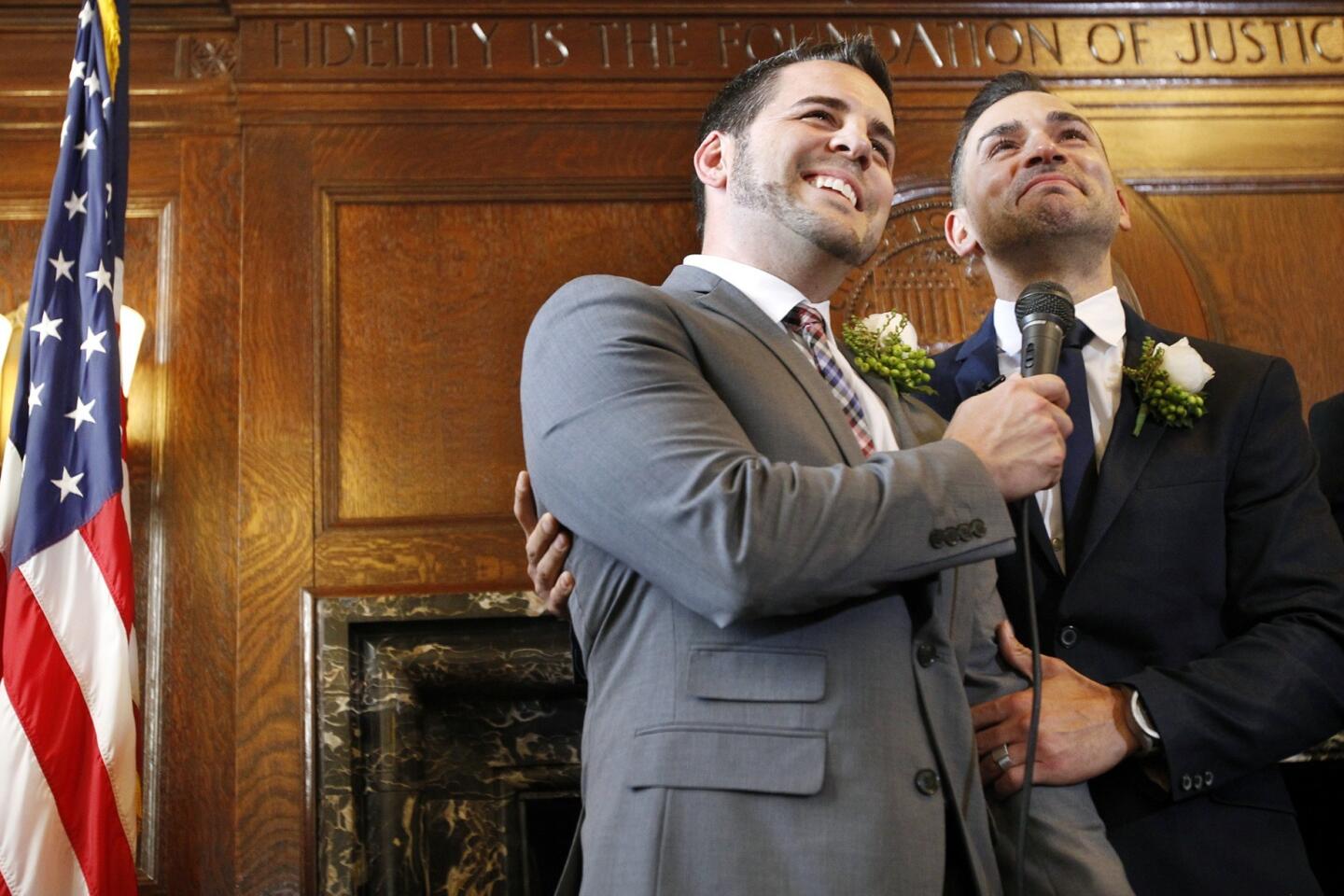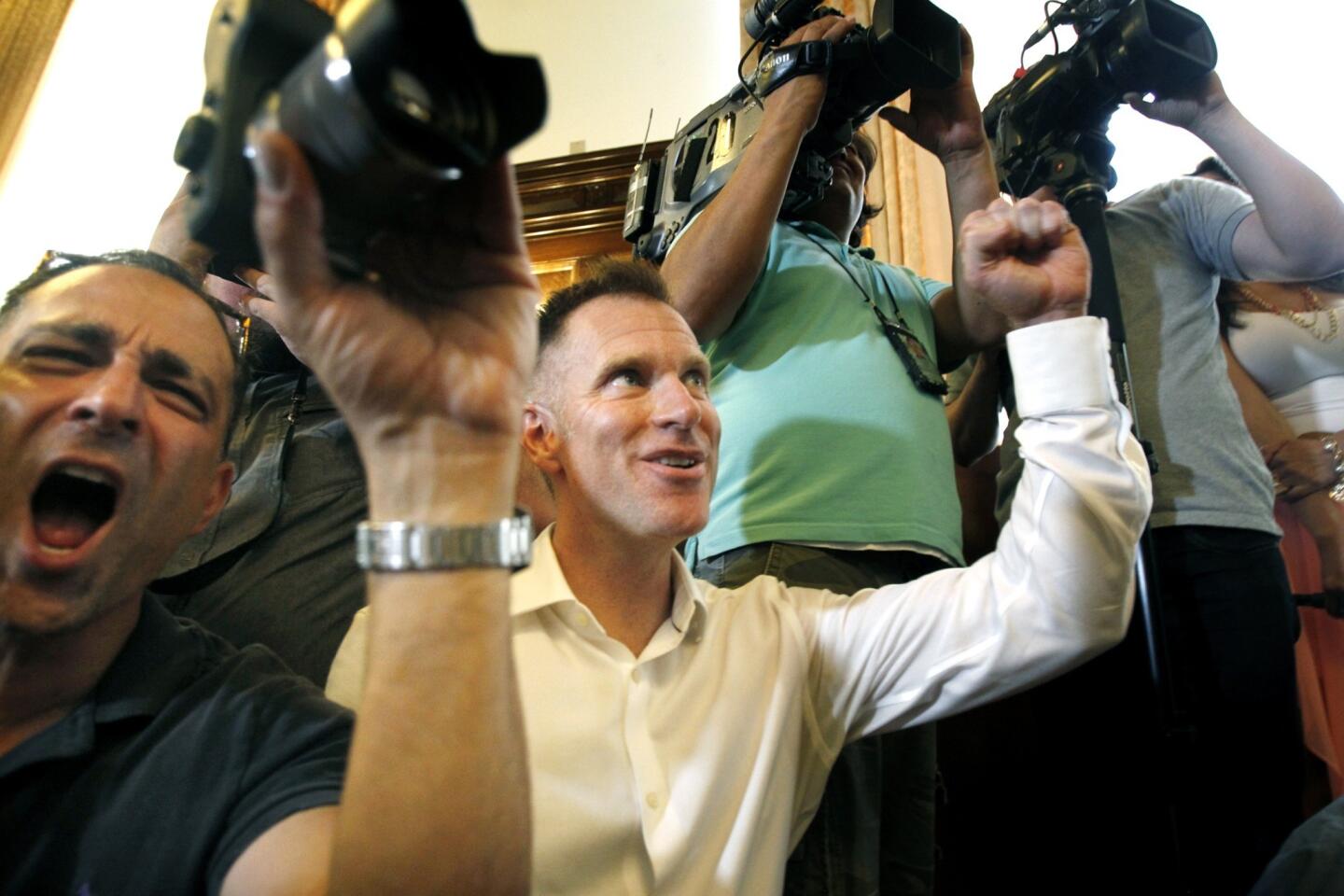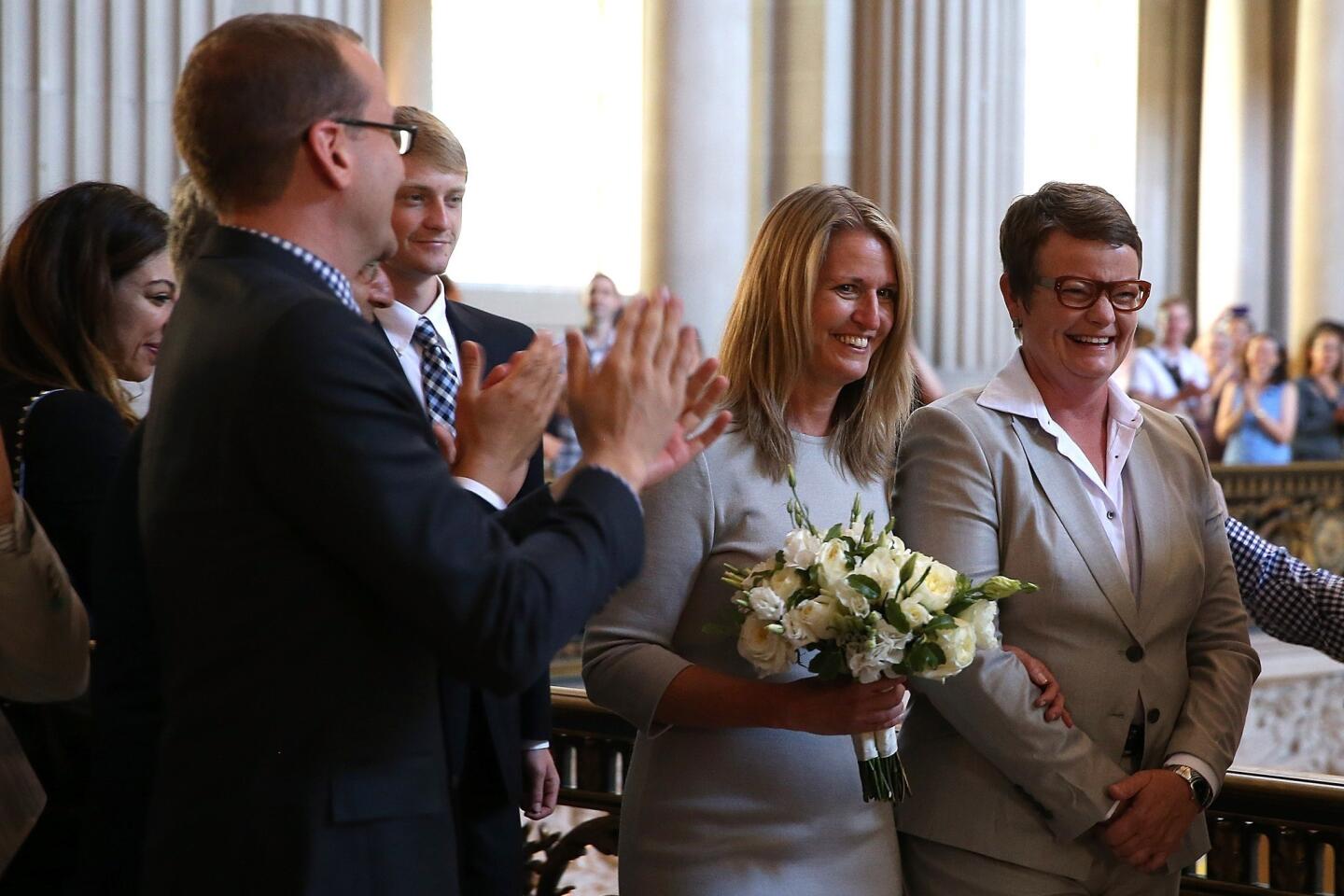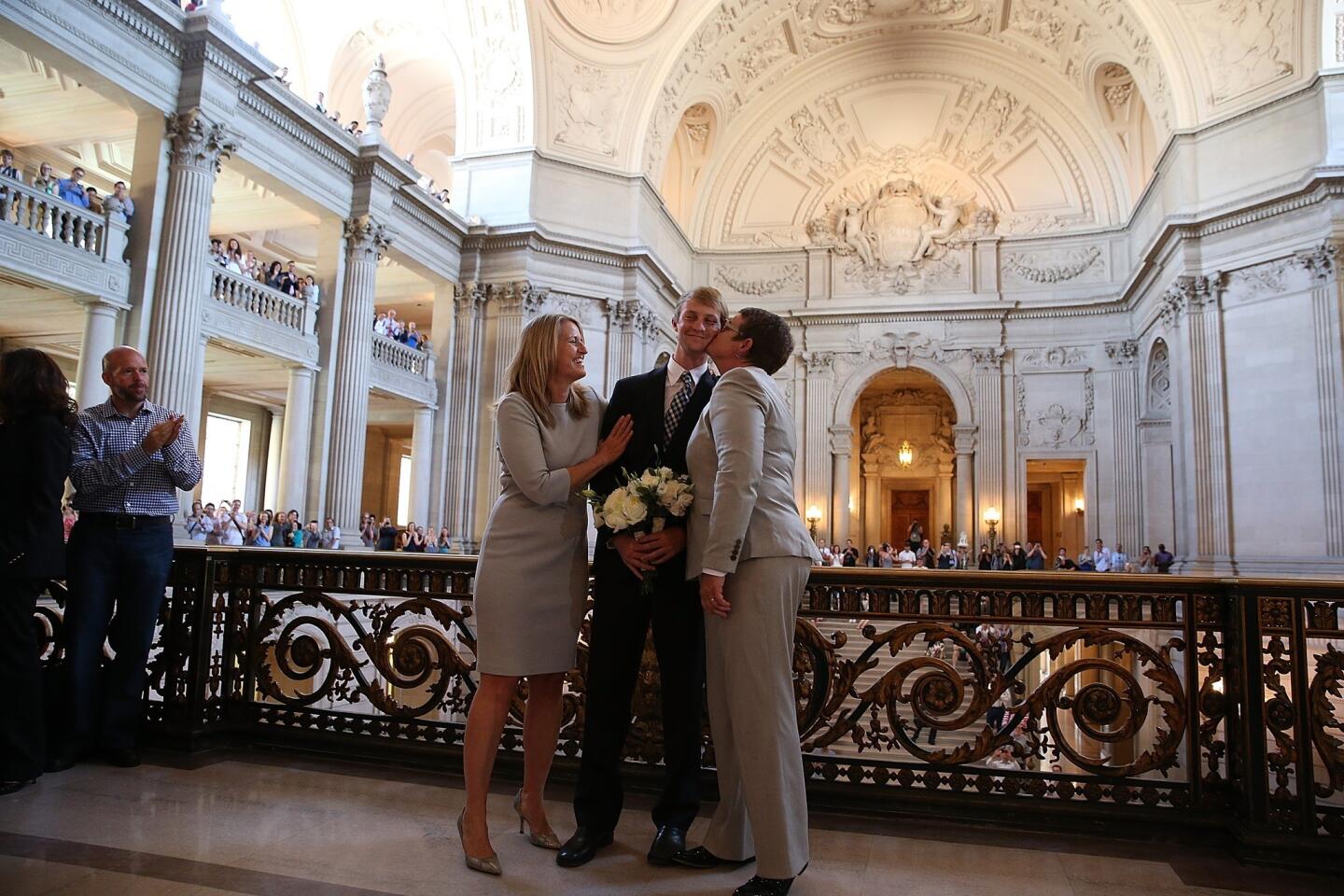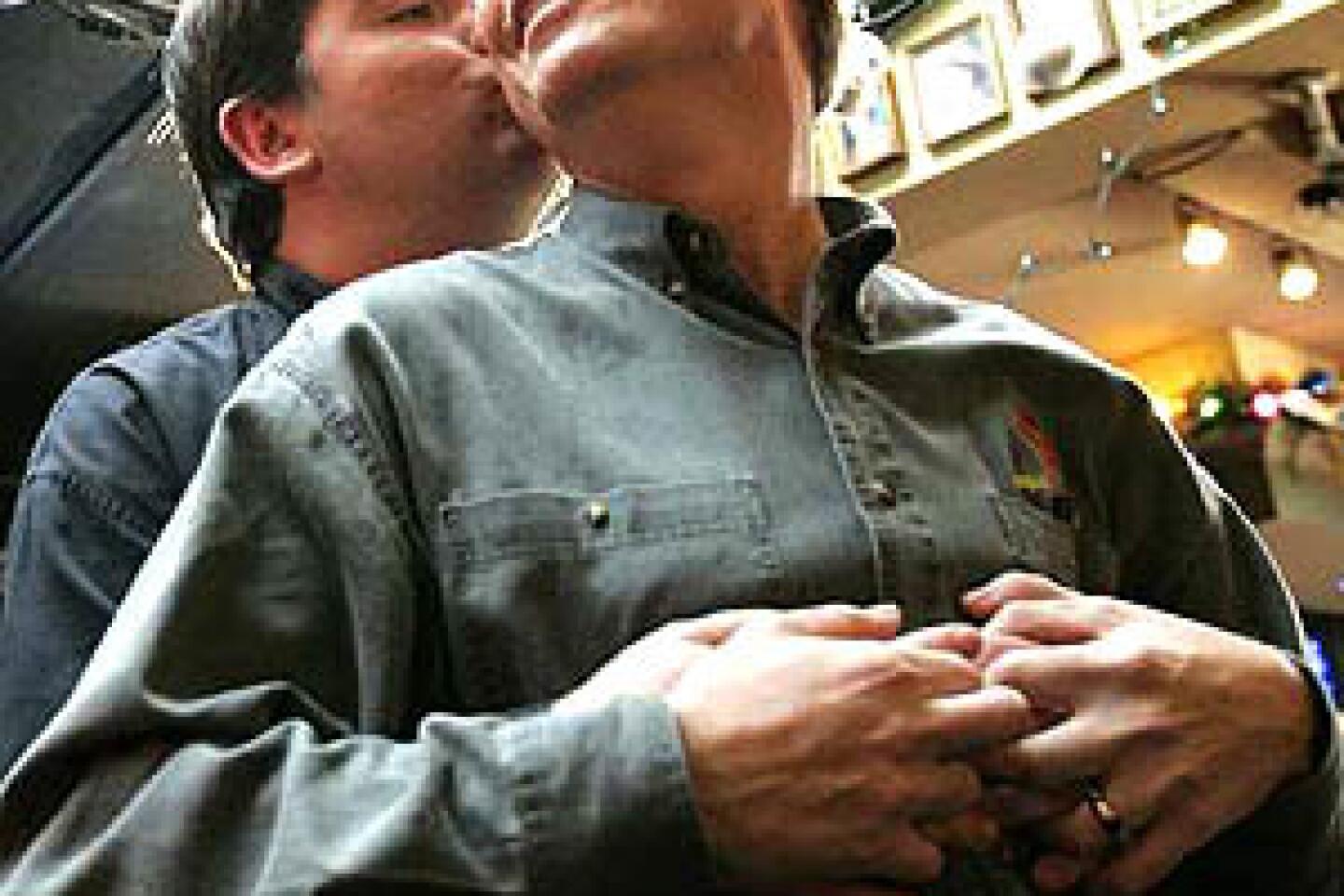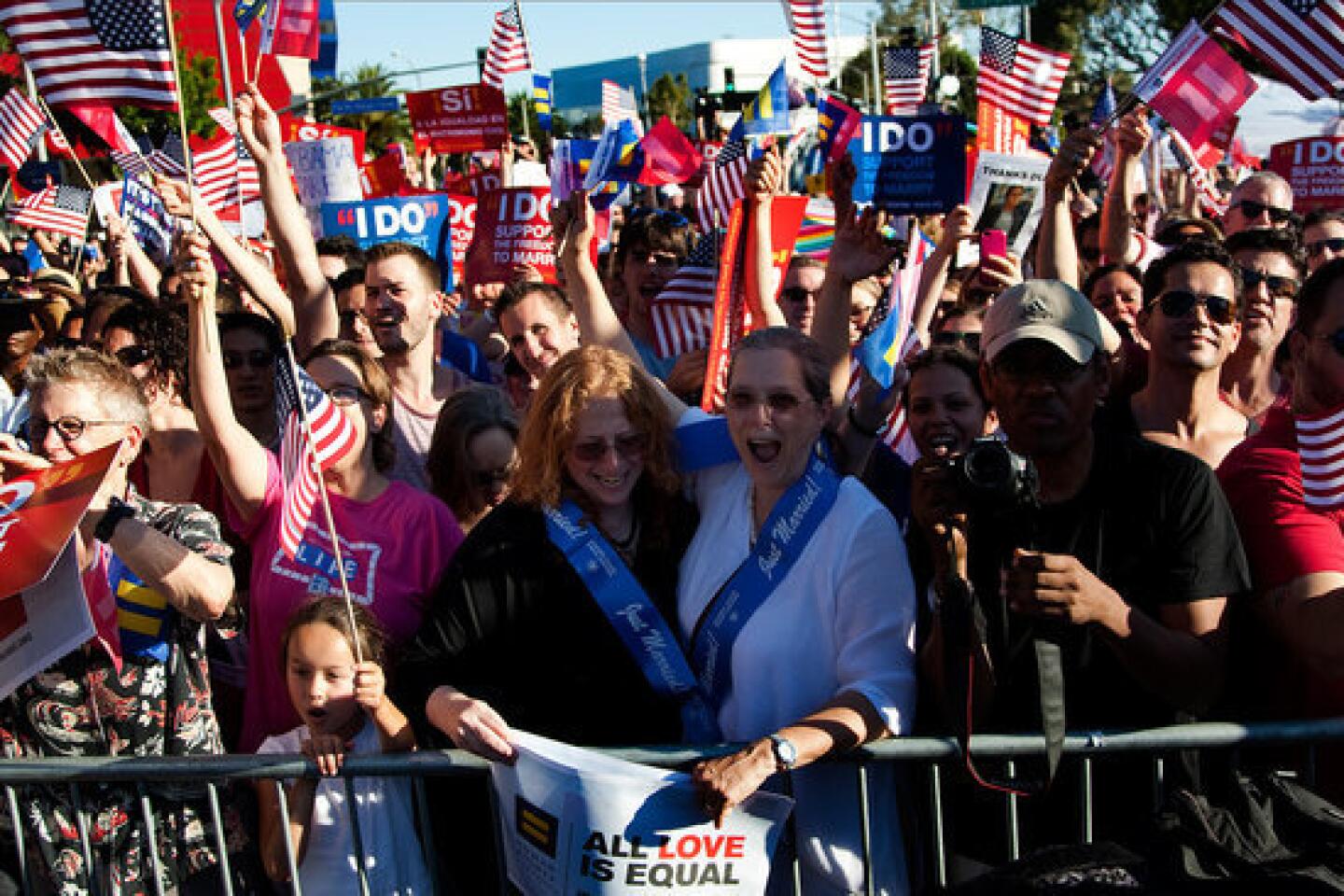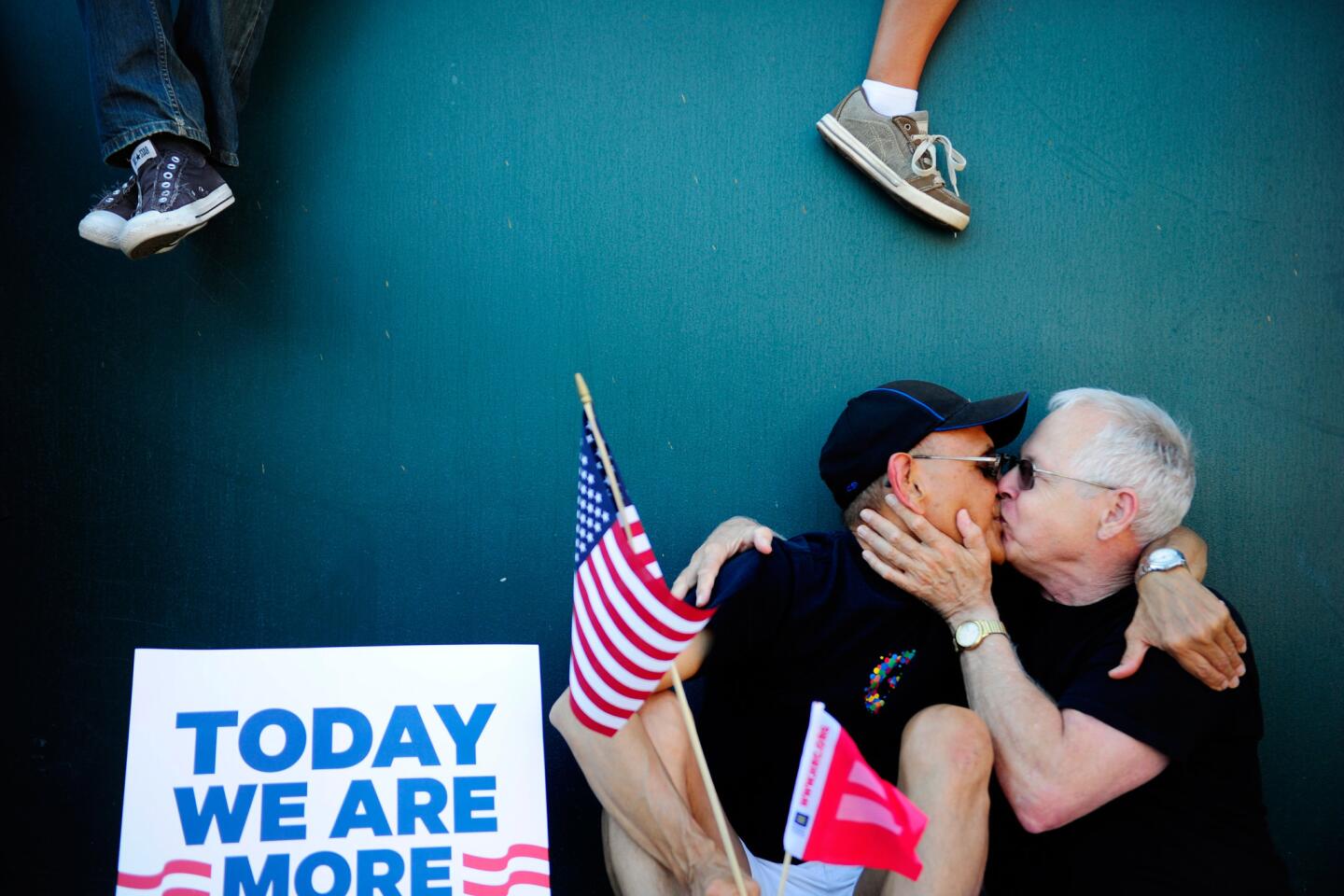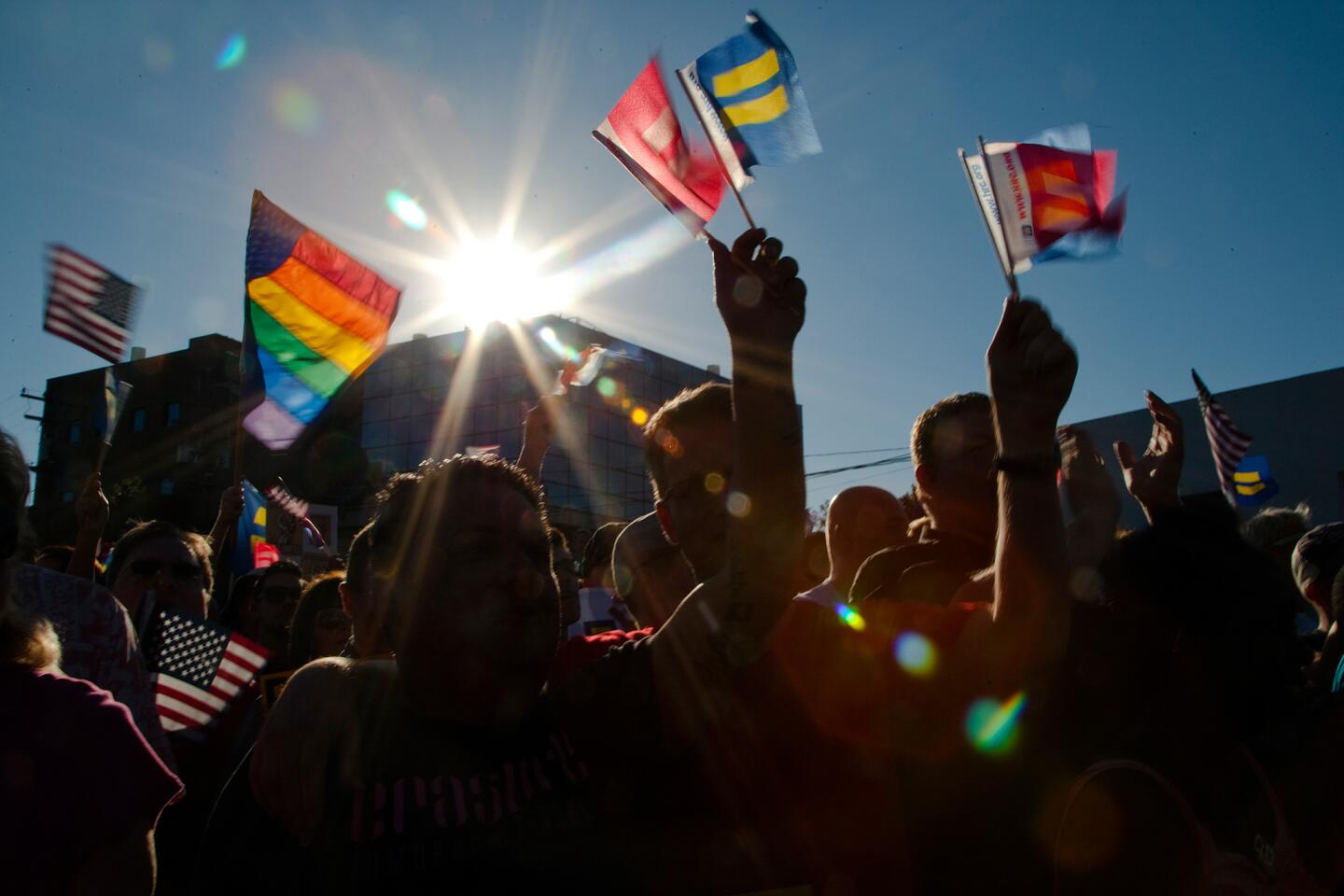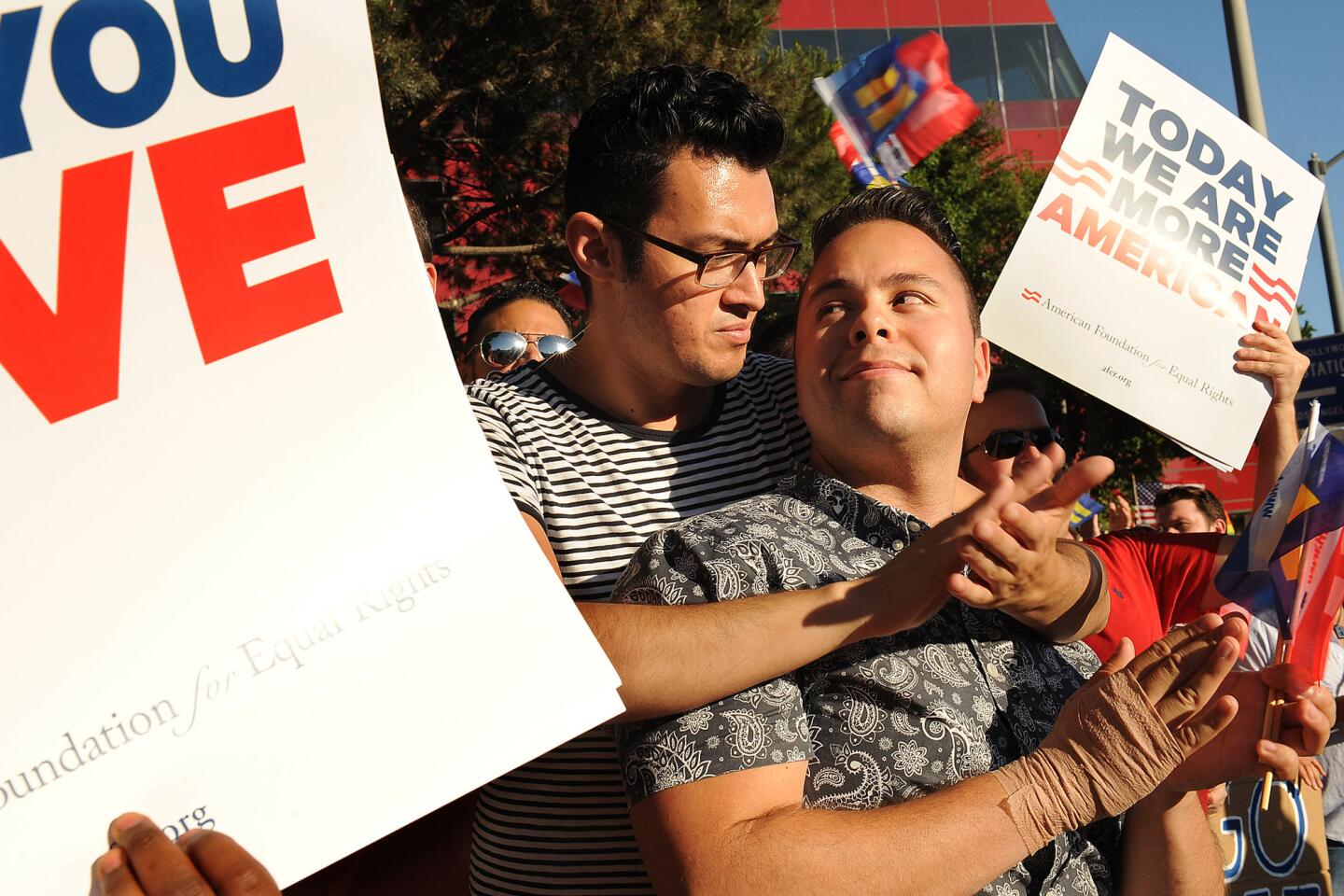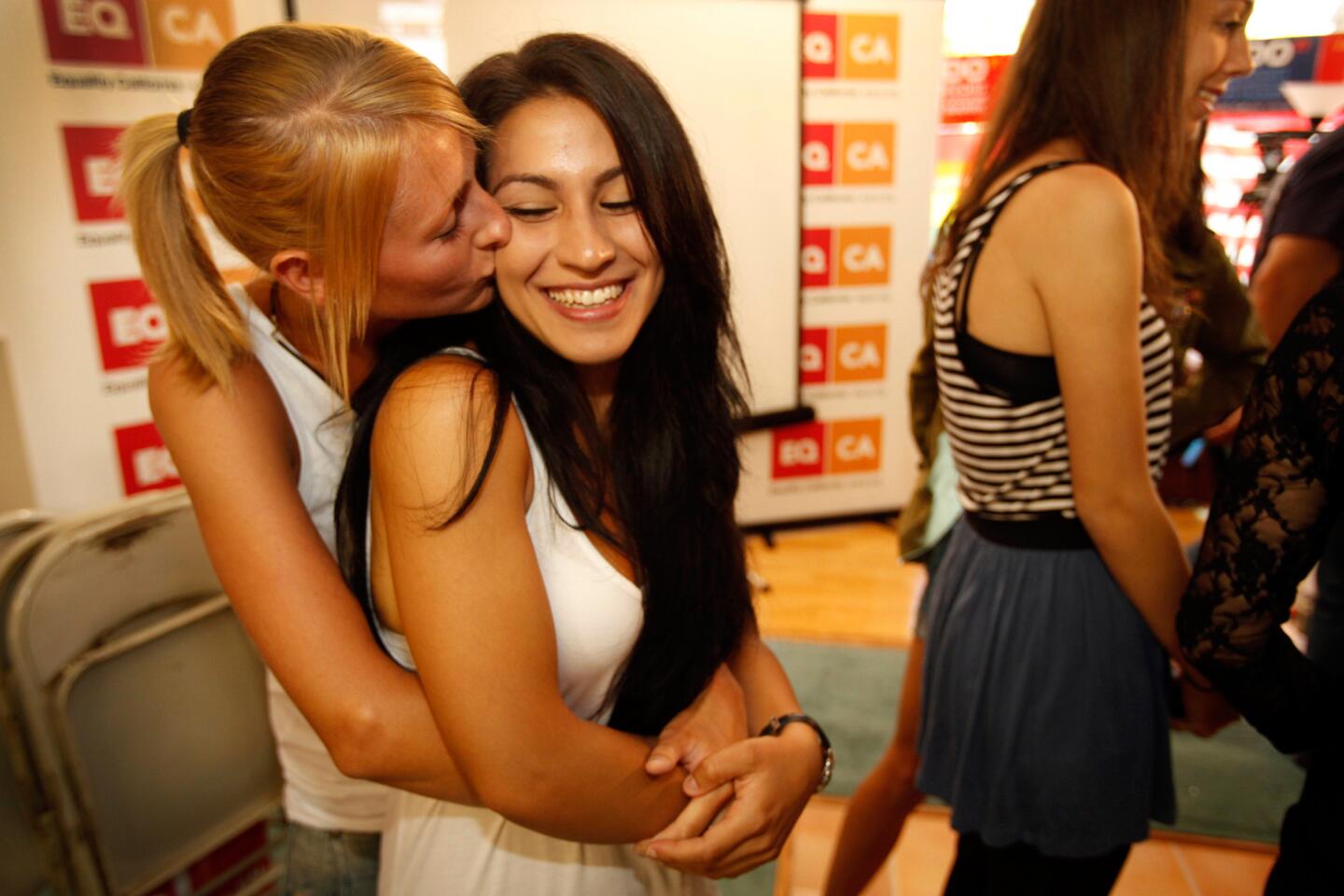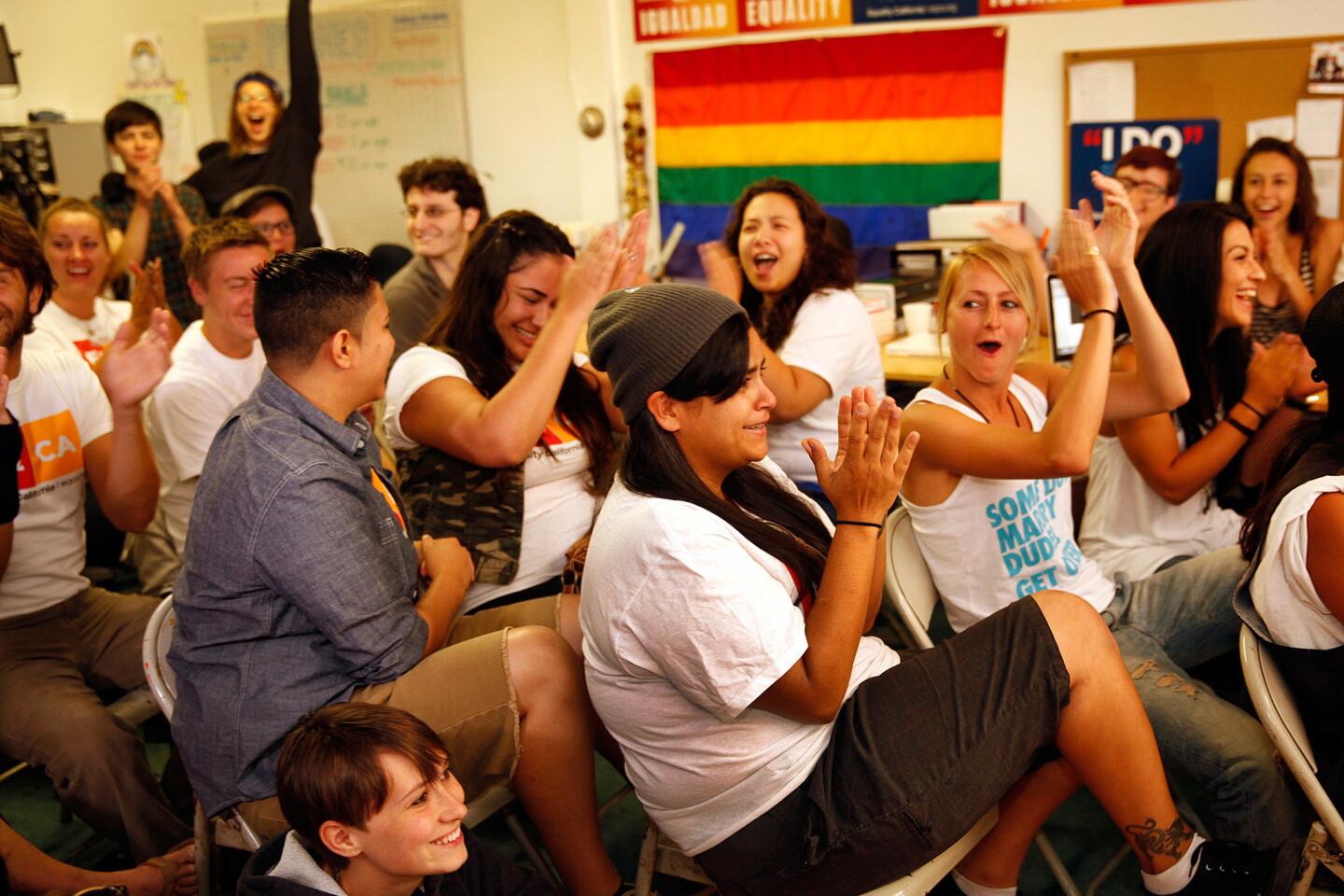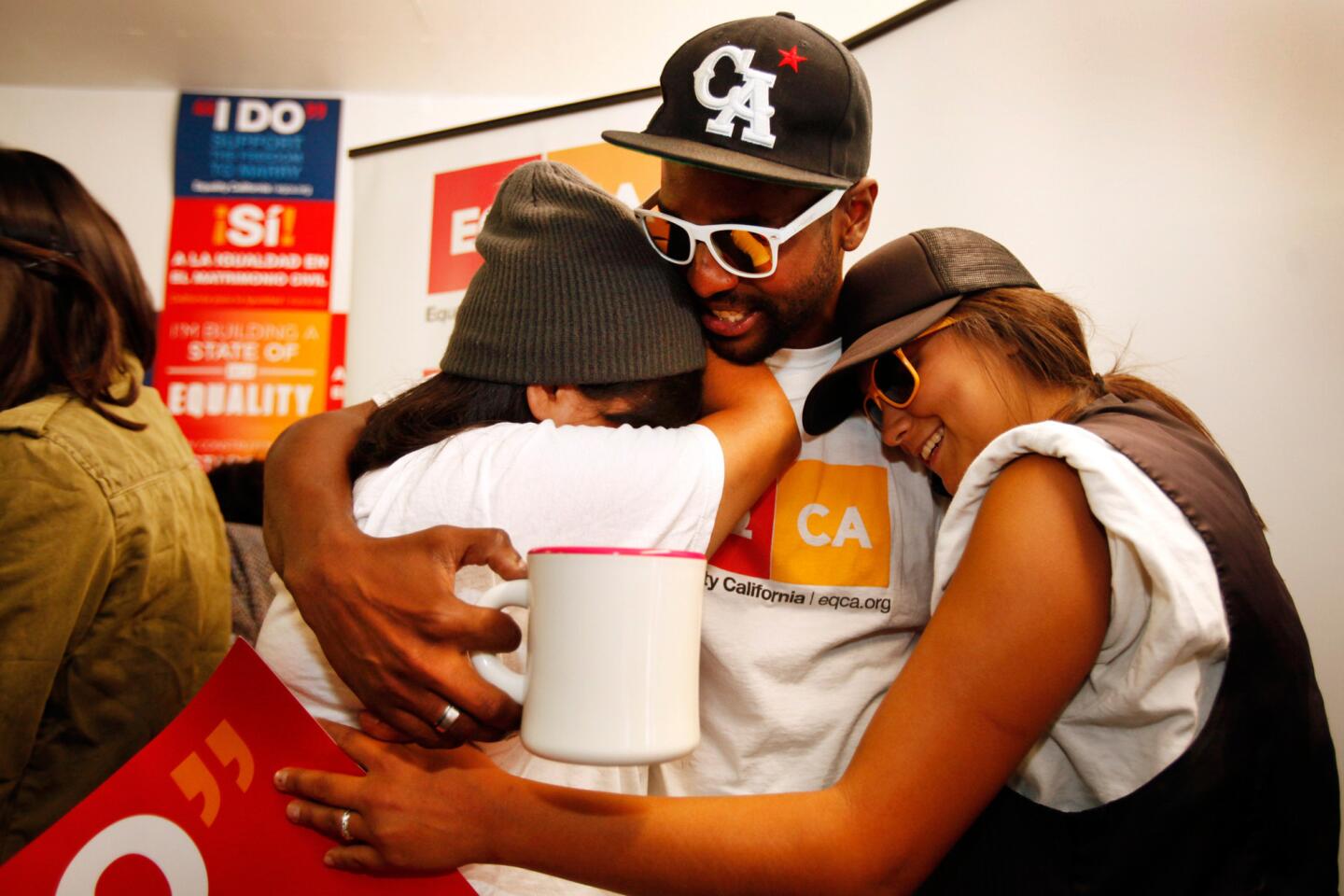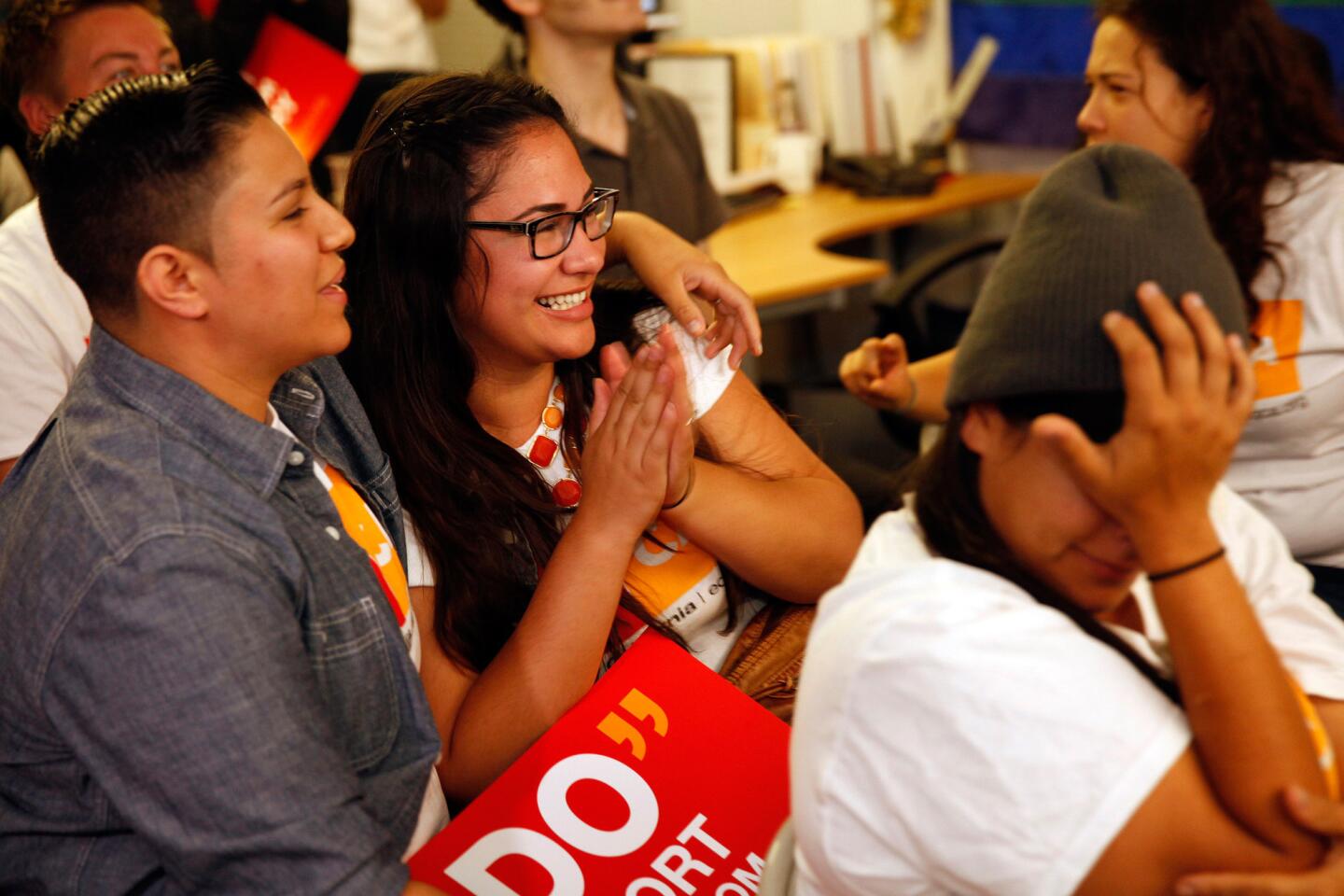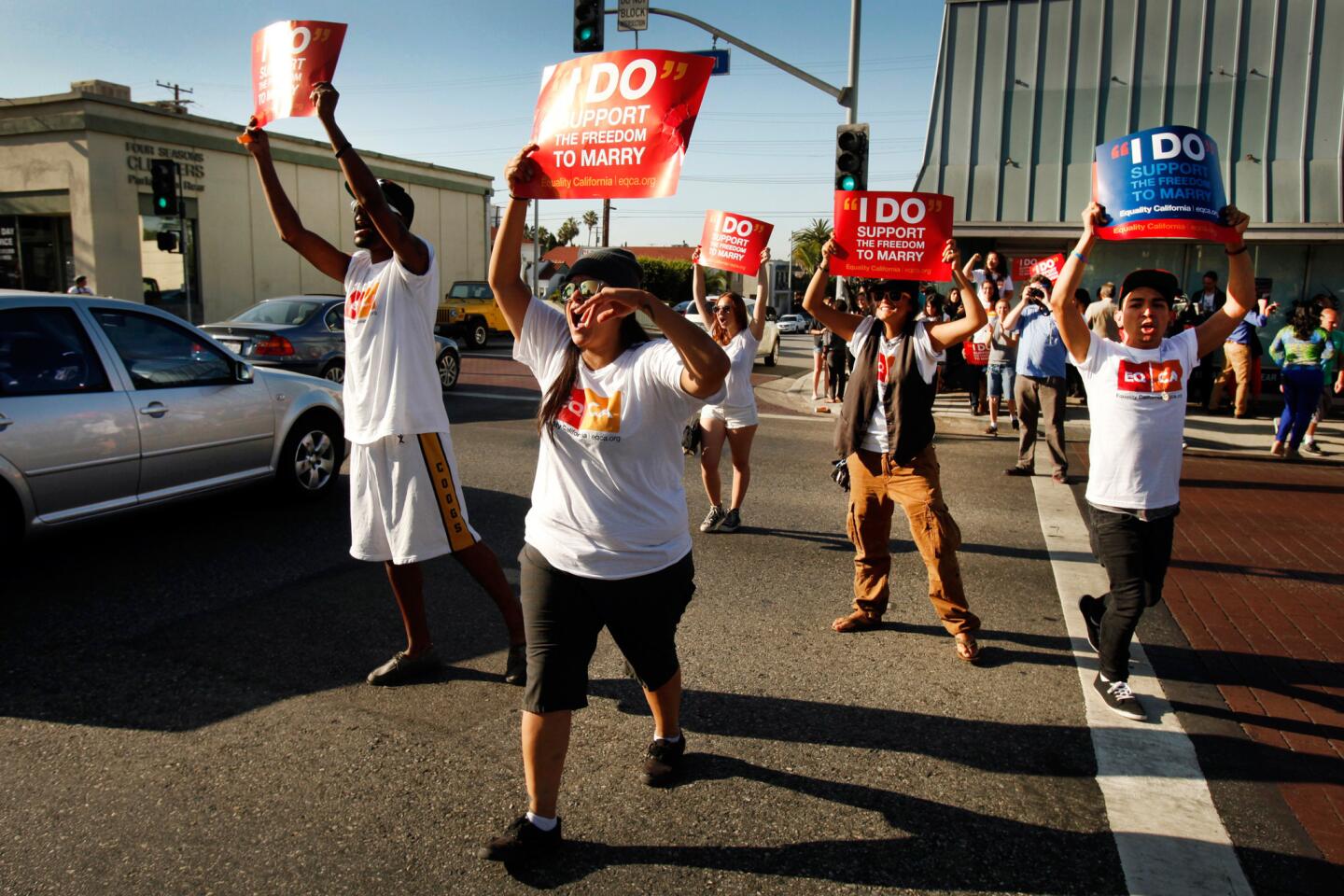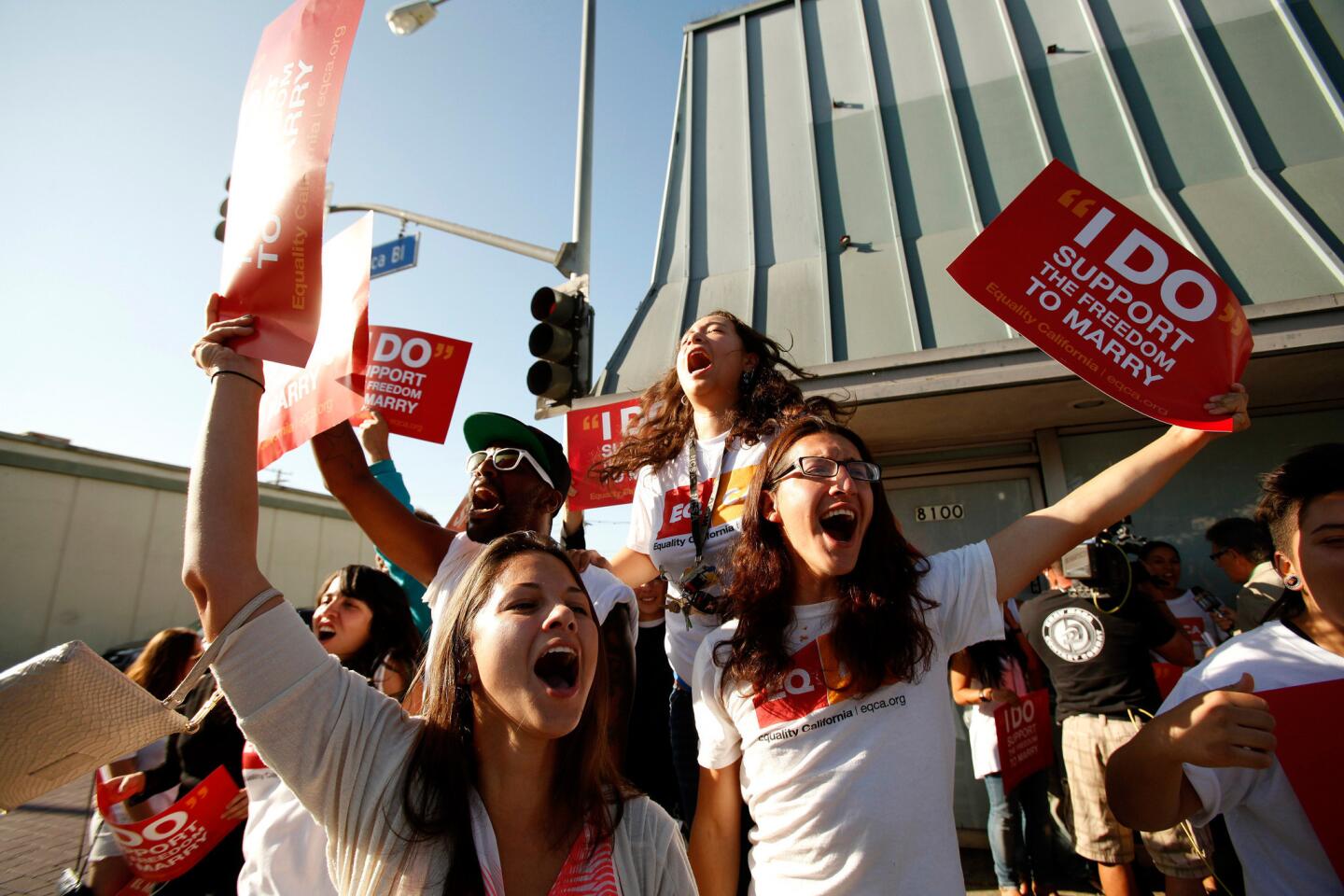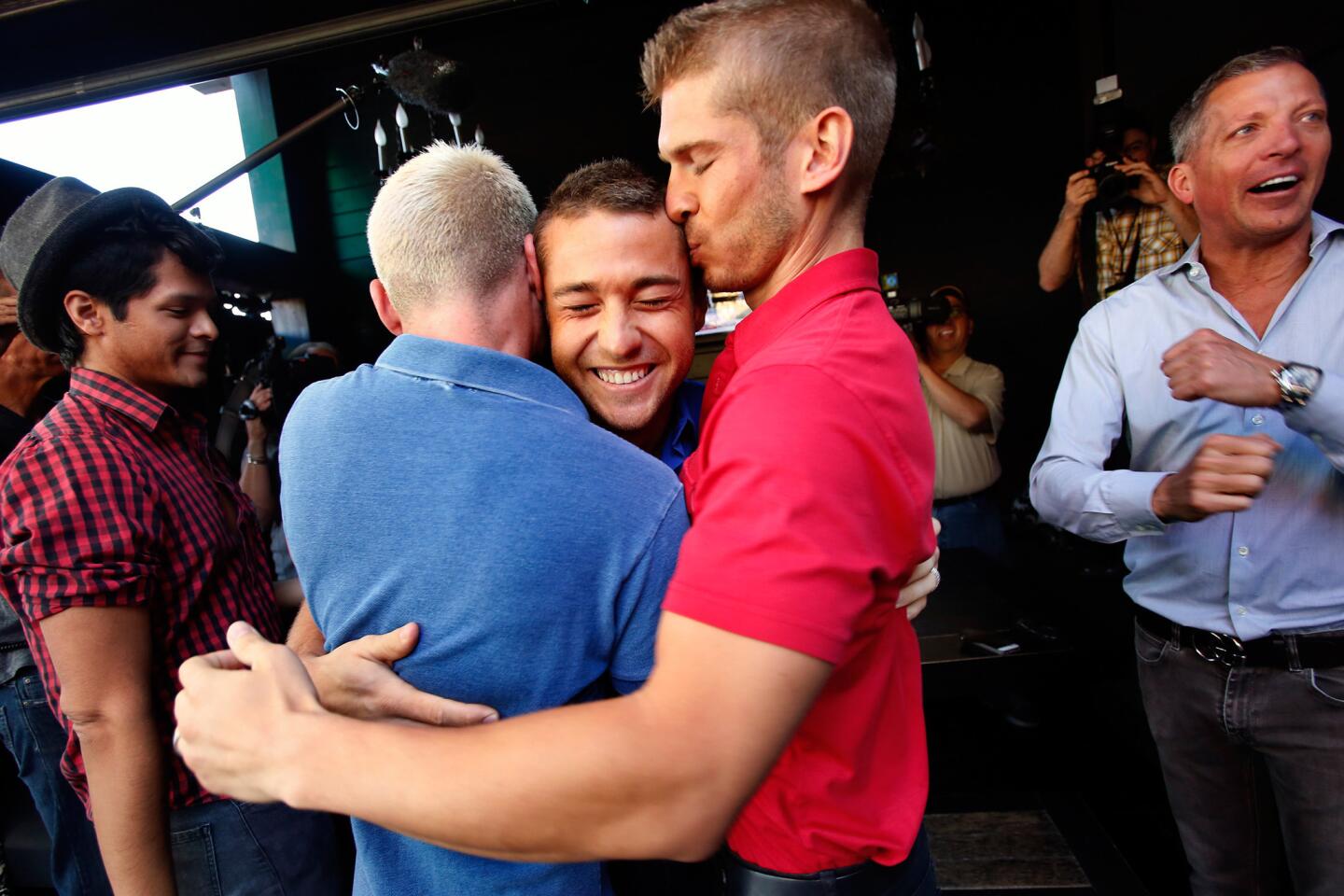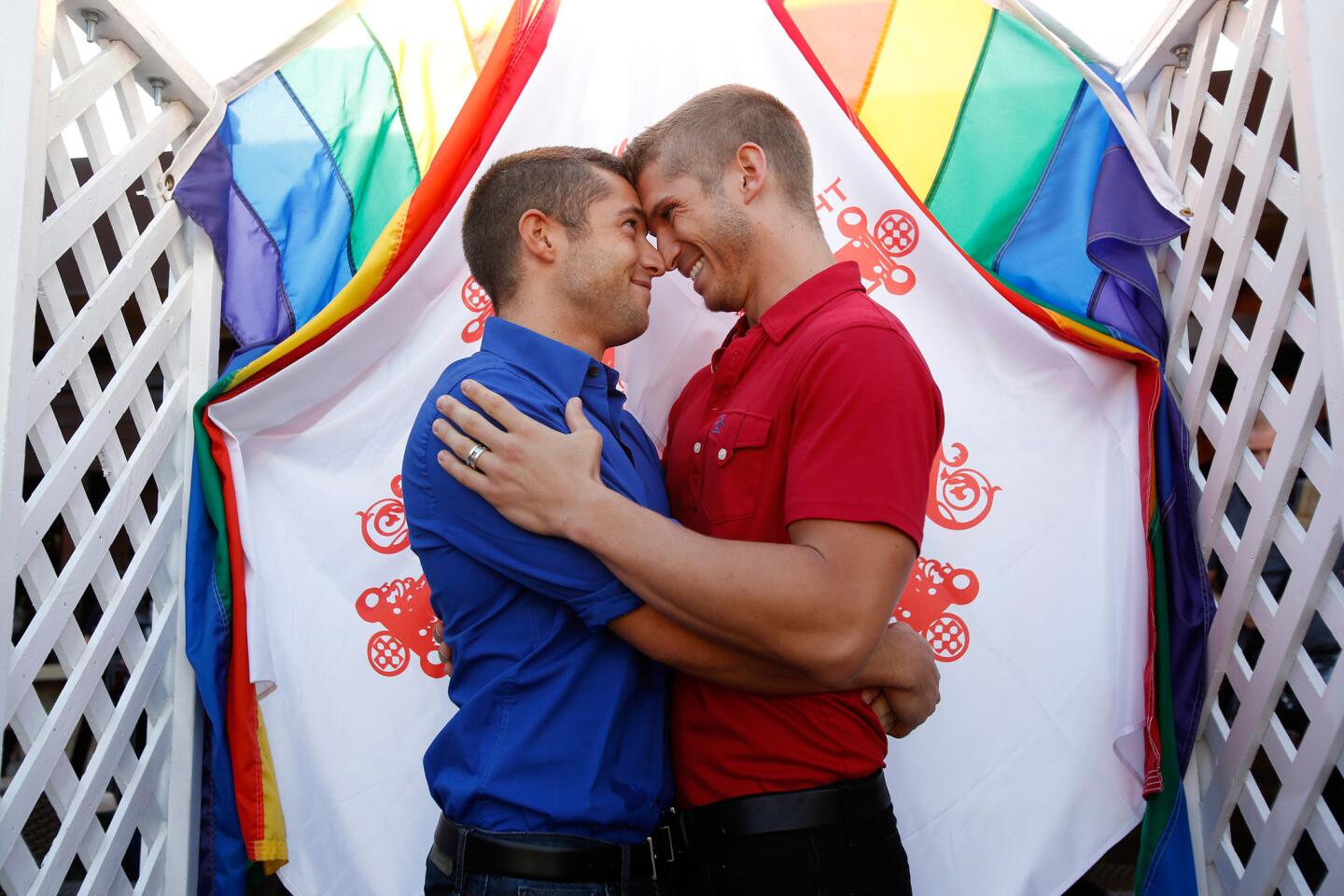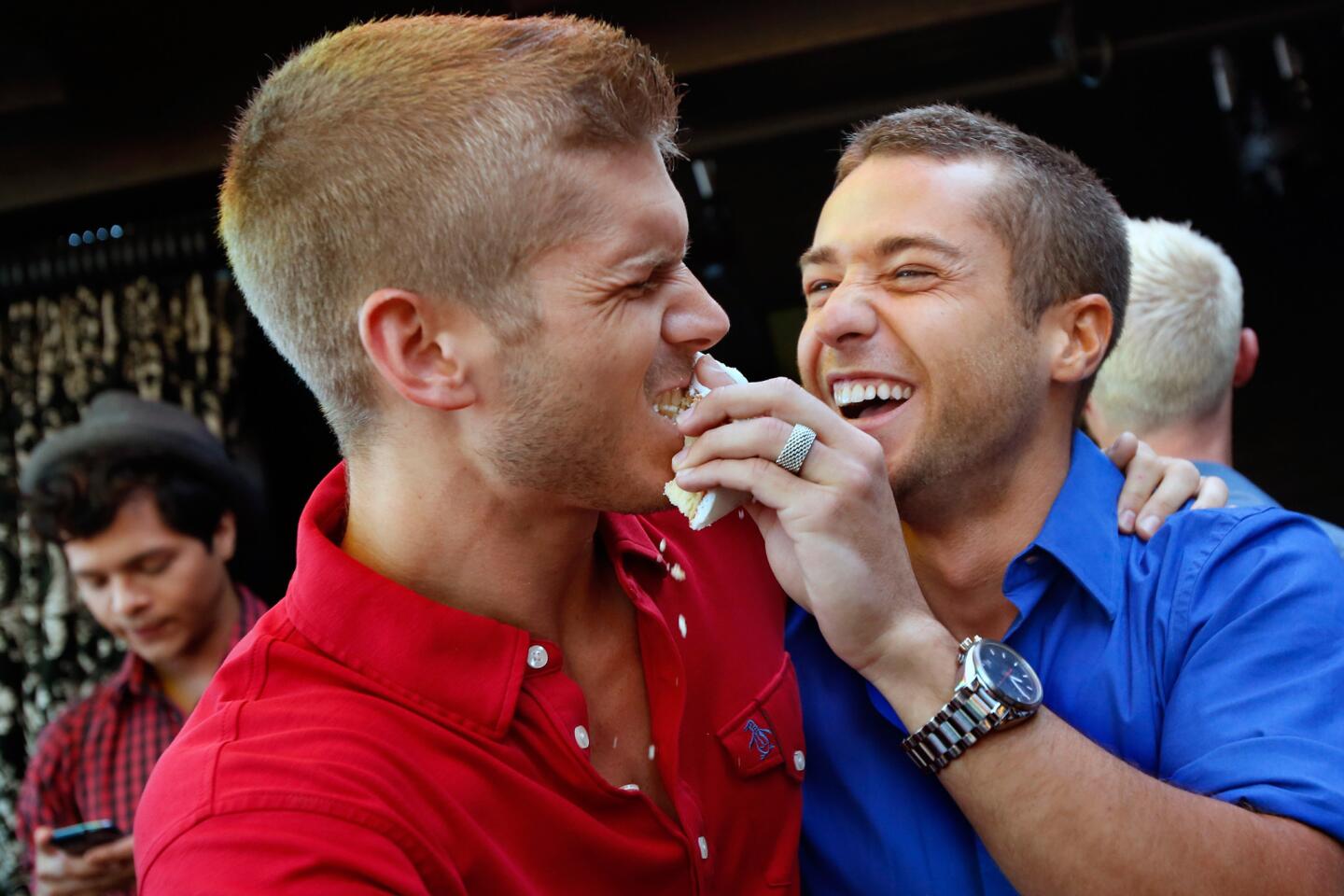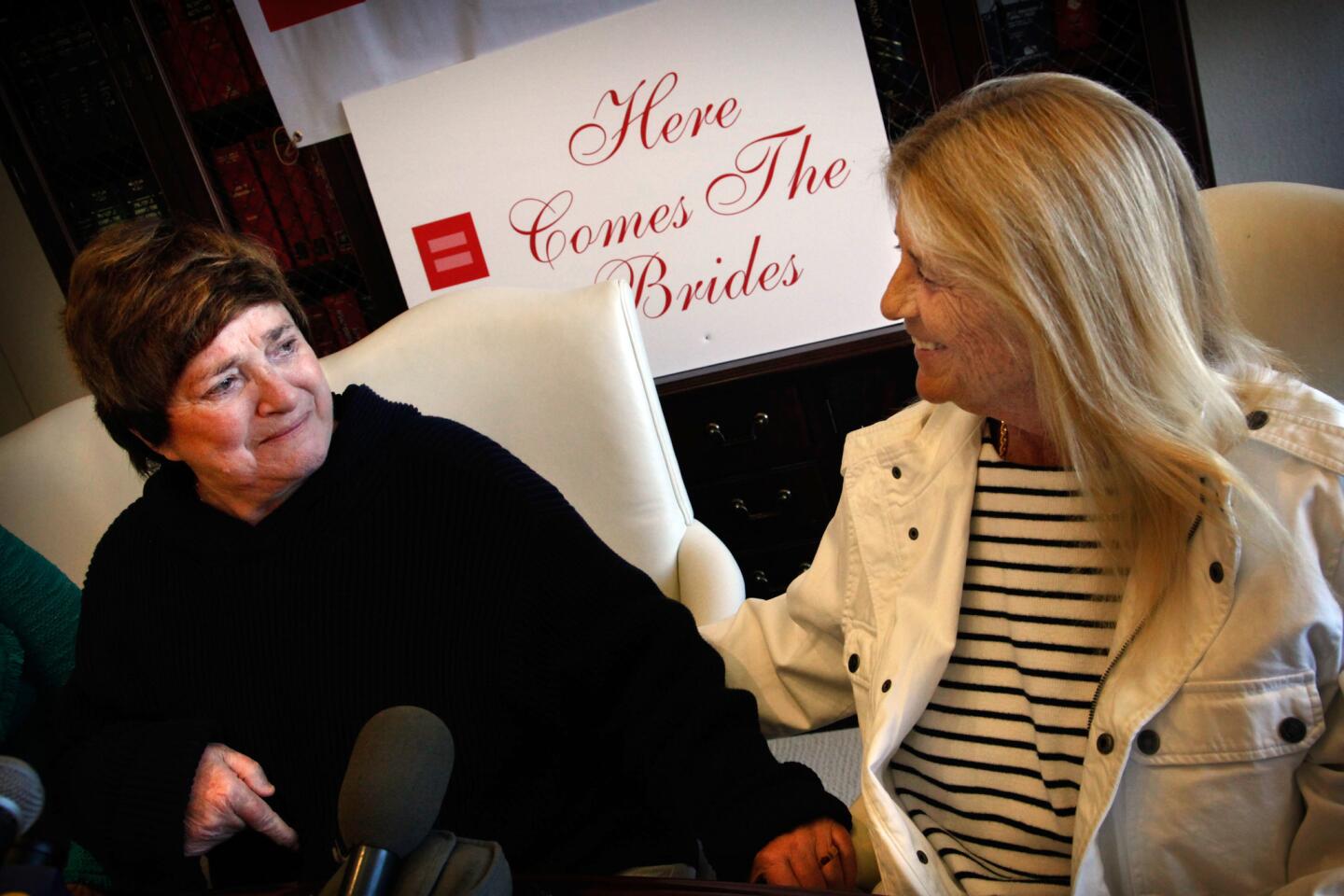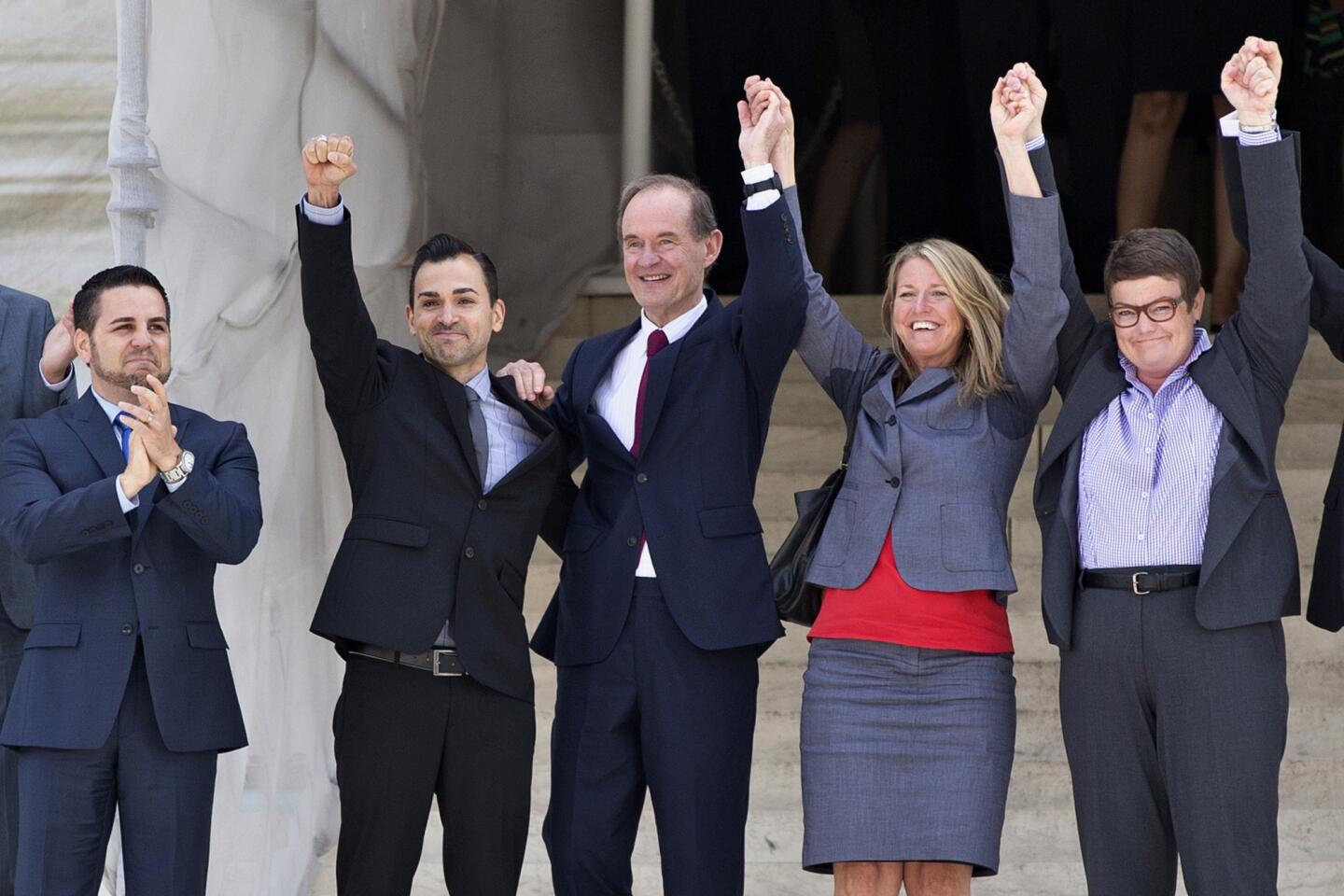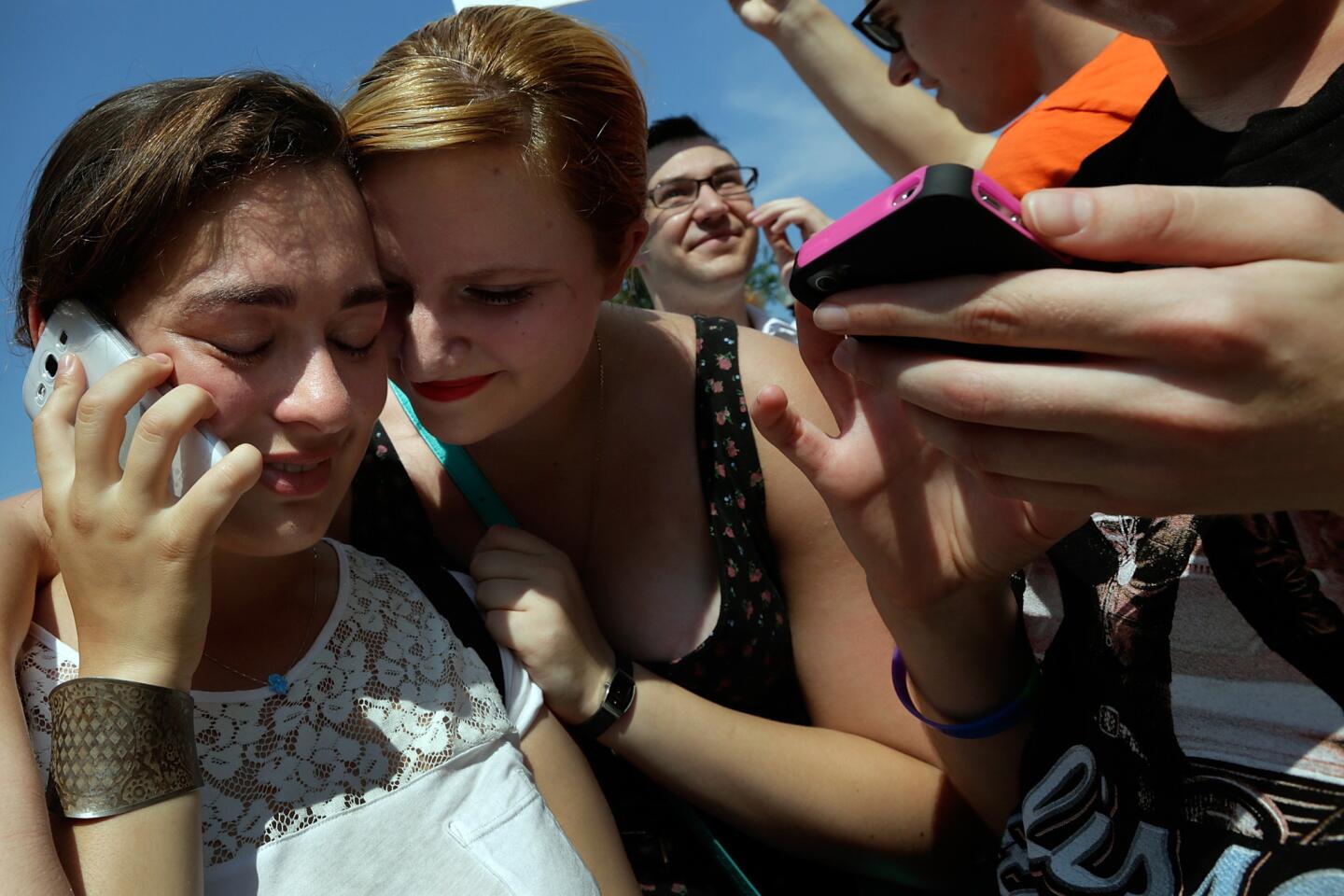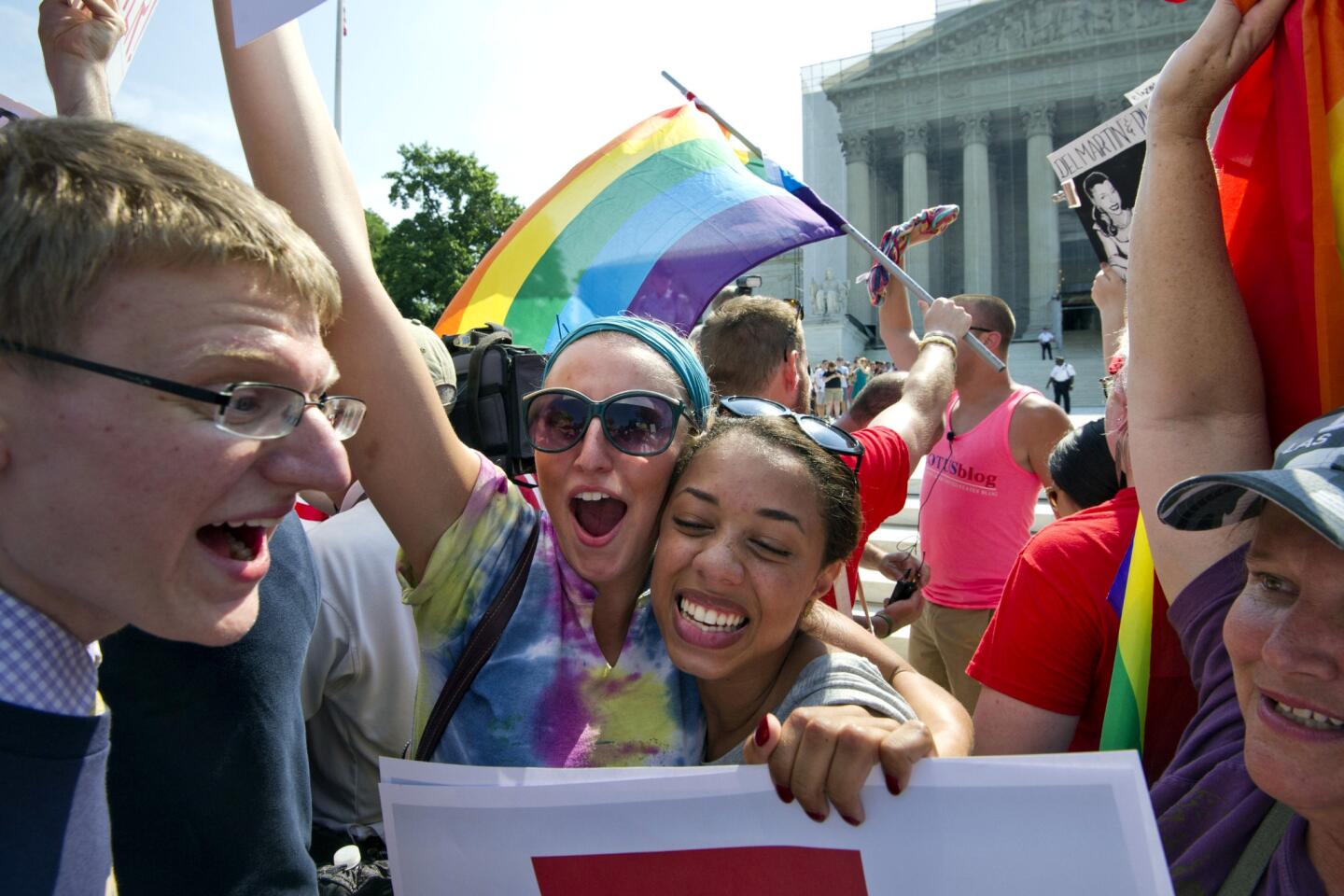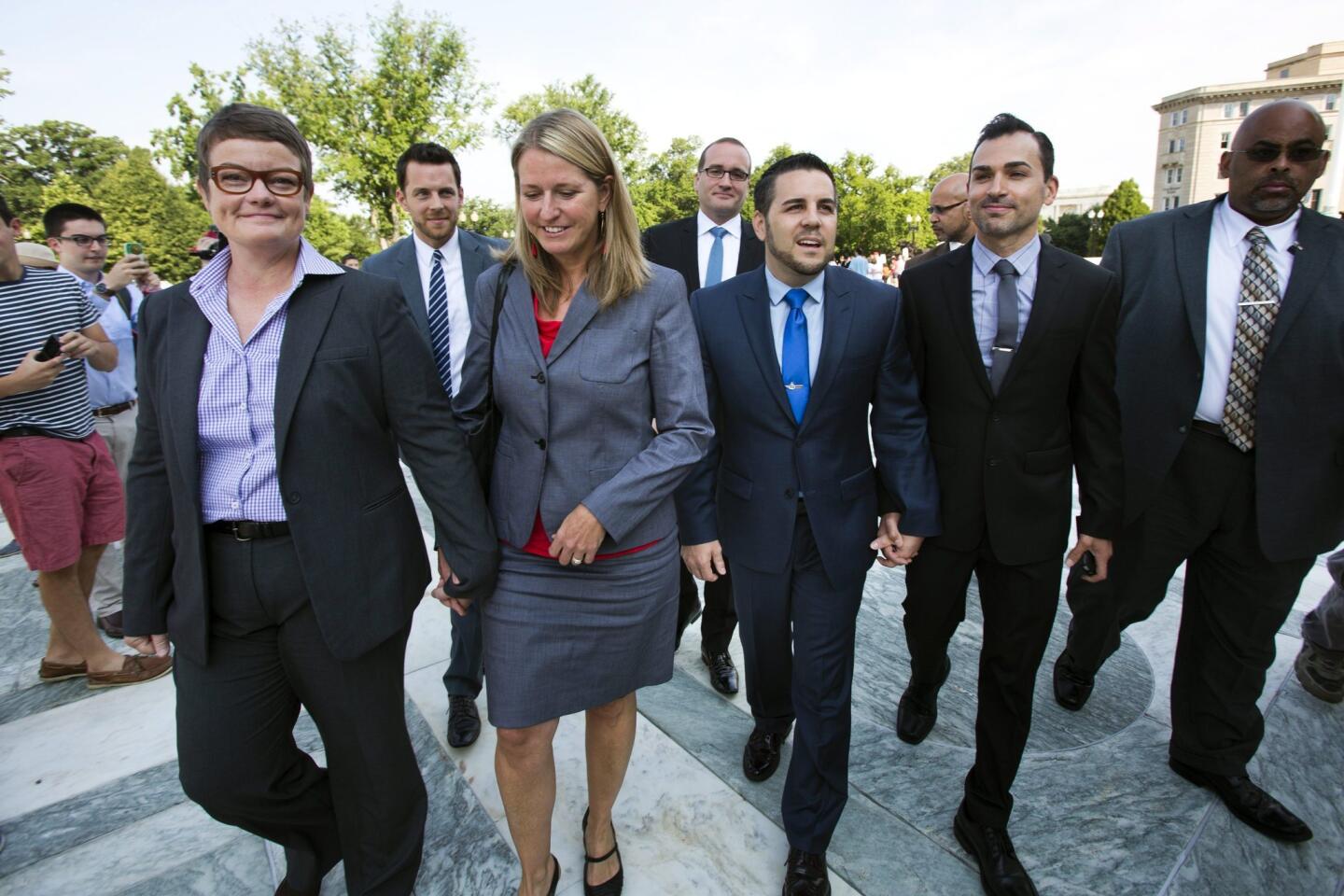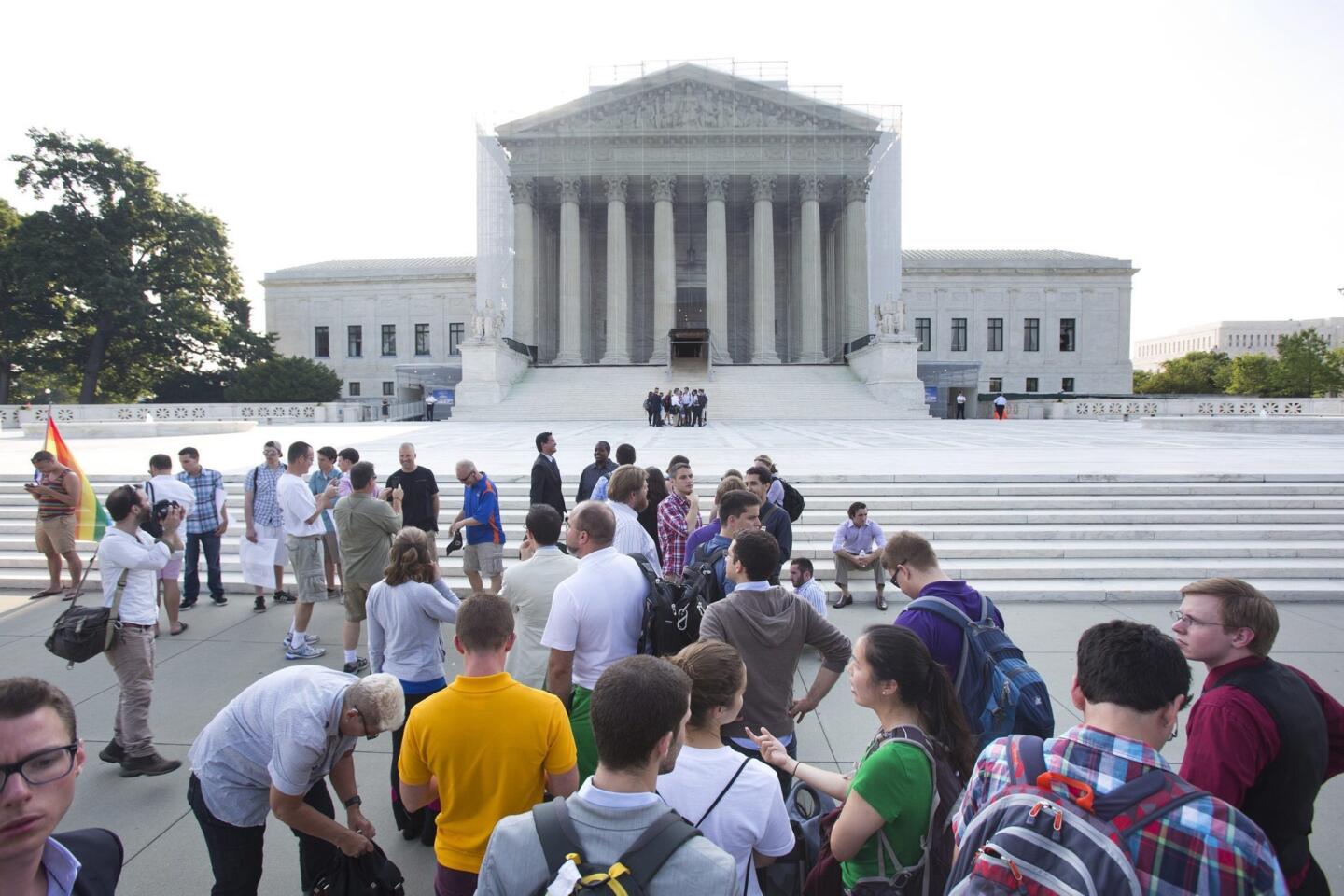Supreme Court might dismiss Prop. 8 case on a technicality
- Share via
SAN FRANCISCO — Lawyers leading the fight for gay marriage in California have been quietly preparing state officials for the possibility the U.S. Supreme Court might dismiss the case on a technicality next month without deciding the fate of Proposition 8.
The justices could decide that the sponsors of the ballot measure outlawing same-sex marriage had no legal right, or standing, to defend it in federal court. That would end the case in Washington, but it is not clear what it would mean for California.
If state officials declared Proposition 8 dead, relying on U.S. District Judge Vaughn R. Walker’s 2010 ruling against the measure, same-sex weddings could commence within weeks or months. Or there could be another legal fight over the reach of Walker’s ruling.
PHOTOS: Supreme Court considers gay marriage
That technicality has prompted fierce arguments among prominent law professors over legal procedure. Their debate has taken place on legal blogs, with scholars staking out sharply different stands.
“It’s become a cottage industry,” said Theodore J. Boutrous Jr., a lawyer for the challengers.
Depending on what the Supreme Court decides, a ruling on standing could provoke a fight over whether the San Francisco judge’s decision applies statewide or only to the two couples who sued or the counties where they live, Los Angeles and Alameda.
On one side is Erwin Chemerinsky, dean of the UC Irvine law school. He says Walker’s ruling affects all of California because it ordered state officials to stop enforcing Proposition 8. Marriage is a matter of state law, not local law, he said.
On the other is UC Davis law professor Vikram Amar, who says Walker’s order would be limited because the suit was filed on behalf of two couples, not all gay couples, and included only two of the state’s 58 counties as defendants.
Amar’s point of view was bolstered by a liberal judge on the U.S. 9th Circuit Court of Appeals, who in 2011 chided the high-profile anti-Proposition 8 legal team for failing to have sued more defendants.
TIMELINE: Gay marriage across the U.S.
Gay rights lawyers are counting on Gov. Jerry Brown and Atty. Gen. Kamala D. Harris, who support same-sex marriage, to view Walker’s ruling as a statewide mandate and enforce it.
“We have definitely been communicating our views to them,” Boutrous said.
University of Pennsylvania law professor Kermit Roosevelt said that even though he doubts Walker had the authority to issue a statewide ruling, Brown could choose to follow it.
“It would be perfectly permissible for the governor to say that this law has been held invalid, and I agree with that decision, and I will not enforce it any further,” Roosevelt said.
Such a step conceivably could lead to same-sex weddings before a court even had time to rule on the breadth of Walker’s ruling. The judiciary would still have the final say, though, and could stop the nuptials once a challenge was filed.
If the Supreme Court ruled that Proposition 8’s sponsors had no right to appeal, then the 9th Circuit’s decision, upholding Walker’s ruling, would be wiped out, leaving only Walker’s order. The high court could resolve any confusion by deciding the reach of Walker’s injunction, or it could let lower courts resolve it.
During the 9th Circuit’s hearing on the case, Judge Stephen Reinhardt grilled the Proposition 8 challengers on why they had not named more defendants to ensure a statewide impact.
“Plaintiffs could have obtained a statewide injunction had they filed an action against a broader set of defendants, a simple matter of pleading,” Reinhardt later wrote in a concurrence in a Proposition 8 order. “Why preeminent counsel and the major law firms of which they are a part failed to do that is a matter on which I will not speculate.”
Boutrous said the legal team considered filing a class action but decided it was unnecessary.
If only two counties could marry same-sex couples or only two gay couples could wed, “it would make no sense,” Boutrous said. “Los Angeles and Alameda would become the mecca for marriage, like Niagara Falls.”
To be sure, the debate may not even arise if the high court decides the dispute in another way. It could rule on the constitutional questions or even dismiss the case by saying the justices should never have taken it up, which would leave the 9th Circuit’s decision in place.
California voters passed Proposition 8 in 2008, six months after the California Supreme Court gave gays the right to wed. The state high court later upheld the initiative as a valid state constitutional amendment.
In anticipation of the state court’s ruling, a newly formed gay rights group hired renowned lawyers Theodore B. Olson and David Boies to sue in federal court in San Francisco. Their suit attacked the measure on federal constitutional grounds and named two same-sex couples as plaintiffs.
Walker held a trial and ruled that Proposition 8 was unconstitutional. The 9th Circuit, in a 2-1 ruling written by Reinhardt, agreed that the law had to be struck down but relied on different legal reasoning. The 9th Circuit has jurisdiction over several Western states but limited its ruling to California. Proposition 8’s sponsors then appealed to the Supreme Court, which is expected to rule late next month.
Procedurally, if the Supreme Court decides Proposition 8 supporters lacked the right to bring an appeal, the case would return to the 9th Circuit., That court could then lift its hold on Walker’s order, lawyers said. Any further challenges would be heard in district court in San Francisco. The Supreme Court decision would take effect in 25 days, the lawyers said.
Walker, who served as the Northern California district’s chief judge, and his successor have both retired. Judge Claudia Wilken, a Clinton appointee, now heads the district court and may inherit the dispute.
ProtectMarriage, the sponsors of Proposition 8, insist that Walker’s ruling affected only the two gay couples who sued. But the group did not appeal the scope of his injunction at the time.
If the Supreme Court determines that ProtectMarriage has no standing, the group would have to find a surrogate, possibly a county clerk opposed to gay marriage, to make its arguments in court. And that clerk would then also have to show standing.
“One would hope our opponents would say it is time to stop this fight and move on to something else,” Boutrous said.
Gay rights lawyers said they would advise couples that they could marry legally if Brown follows Walker’s ruling, even with continued litigation.
“People are just grasping at straws to think there is a problem,” said Jon W. Davidson, legal director of Lambda Legal, a gay rights group.
Dolan reported from San Francisco, Savage from Washington.
More to Read
Sign up for Essential California
The most important California stories and recommendations in your inbox every morning.
You may occasionally receive promotional content from the Los Angeles Times.
